

Papal Lines THE R ECORD

Pick up the Bible! the world’s Bishops urge Catholics
Final Synod message says Catholics should own - and use - a Bible
■ By Cindy WoodenVATICAN CITY (CNS) - Devotion to the word of God must lead Catholics to prayer, concrete acts of charity, unity with other Christians and dialogue with all people of good will, said the world Synod of Bishops.
In their final message to the world’s Catholics, the 253 members of the synod said each Catholic should have a copy of the Bible, read it and pray with it regularly.
“Every home should have its own Bible and safeguard it in a visible and dignified way, to read it and to pray with it,” said the synod’s message, released on October 24.
And, like Jesus who came to proclaim hope and salvation, “the Christian has the mission to announce this divine word of hope by sharing with the poor and the suffering, through the witness of faith in the kingdom of truth and life, of holiness and grace, of justice, and love and peace,” the synod said.
“Authentic hearing is obeying and acting. It means making justice and love blossom in life,” the message said.
It is not enough to explain the word of God to others, the bishops said, but people must let others see and experience the goodness of God through the good that they do.
Archbishop Gianfranco Ravasi, president of the Pontifical Council for Culture and principal drafter of the message, told reporters that “if the word of God is love, then one who has read and prayed over the word must incarnate love. It must lead to communion, solidarity and dialogue.”
Nearing the end of a synod that featured for the first time a major address by the spiritual leader of the world’s Orthodox Christians, Ecumenical Patriarch Bartholomew of Constantinople, the bishops also insisted that “veneration and love for the word of God” is “the principle and source of a first and real unity” that Catholics share with other Christians.
■ Continued - Page 6
■ Pope closes Synod - Page 11
A Fascinating look at the history of our state

Farewell to Abbot Placid

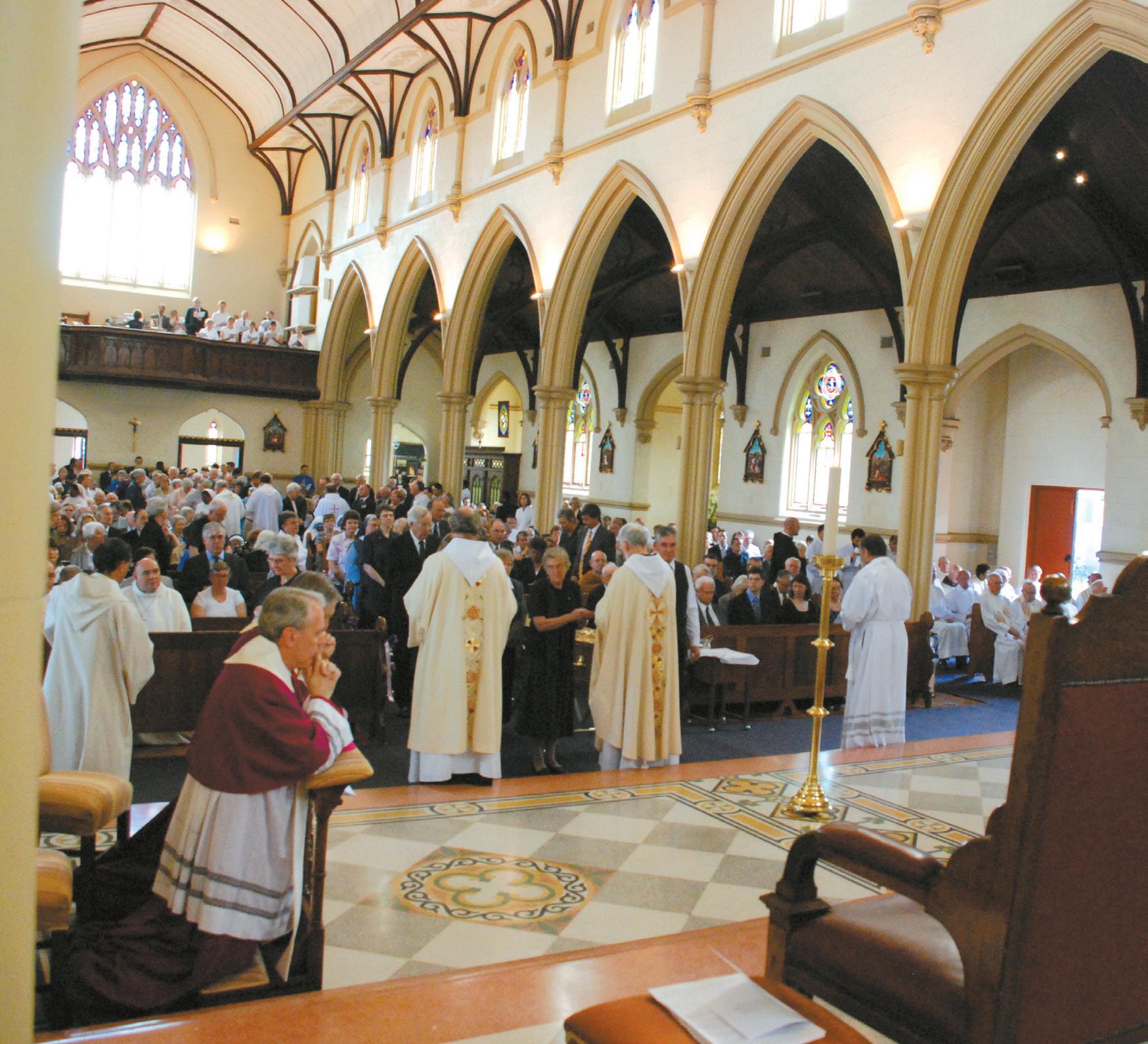
WAUGH ON FILM BUT IS IT GOOD?
‘Brideshead Revisited,’ Evelyn Waugh’s classic tale of the English Catholic aristocracy, has come to the cinema. But is it faithful to the author’s tale? Two Record writers assessed it in the same week.
Catherine Parish, Hal Colebatch - Page 12


“Be indefatigable in your purpose and with undaunted spirit resist iniquity and try to conquer evil with good, having before your eyes the reward of those who combat for Christ.”
-Bishop Matthew Gibney Yes, actually, we are profamily, and proud of it
After the Church was accused in the morning newspaper last week of bigotry over its attitude to same-sex marriages, Archbishop Barry Hickey wrote this defence of the natural family for The Record

Children naturally have a father and a mother, and they have a natural right to be raised by both parents. This natural state of affairs is not altered by the fact that some children lose one or both parents through death or divorce and some children never get the chance to know their father.
Many parents (and grandparents) in these situations work heroically to give their children the best possible chance to grow through the difficulties they face.
However, fifty years of research worldwide in the social sciences has overwhelmingly demonstrated that the best environment for children growing up is with their married, biological parents.
Similar research demonstrates that it is also the best environment for the parents. One has to be wilfully blind to claim that the strength of the natural family and society’s preference for it “does not stand up to analysis”, as Professor Alastair Nicholson would have us believe. That is why the Catholic Church puts so much effort into persuading and helping men and women to take their marital and parental responsibilities seriously for their own good, the good of their children, and the good of society.
Over the last 40 years or so, our society has been less than fully supportive of marriage and family, and the consequences of this ambivalence are clear.
Those consequences of our weaknesses and failures are not a justification to create even more difficult situations for children.
■ THE JUDGE IS WRONG: a same-sex attracted writer bluntly states why PAGE 9
■ THE FAMILY IS THE ONLY FUTURE: US Expert VISTA 23
ALONE, BUT NOT LONELY
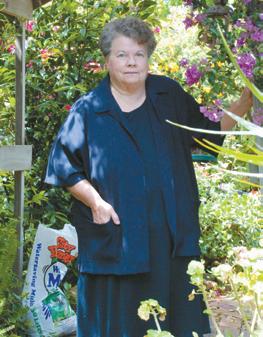
Saint for the week
Winifred
Youth conclude Love series

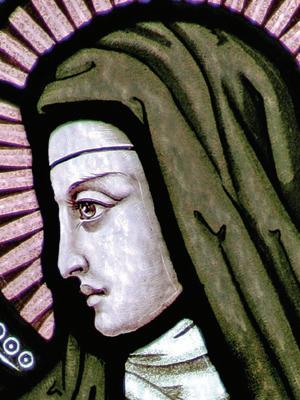

Walking with Him Daily Mass Readings
2 S ALL SOULS
Vio Isa 25:6-9 Death destroyed Ps 26:1.4.7-9.13-14 The Lord my light Rom 5:5-11 Joyful trust Mt 11:25-30 I will give you rest [Alt. readings from Mass for the dead]
3 M St Martin de Porres, religious (O)
Gr Phil 2:1-4 Be united in love
Ps 130:1-3 My heart not proud
Lk 14:12-14 Open door for poor
4 T St Charles Borromeo, bishop (M)
Wh Phil 2:5-11 The mind of Christ
Ps 21:26-32 Poor praise the Lord
Lk 14:15-24 A great banquet
5 W
Gr Phil 2:12-18 The word of life
Ps 26:1.4.13-14 My light, my help Lk 14:25-33 Give up possessions
6 T Gr Phil 3:3-8 Glory from Christ Jesus
Ps 104:2-7 Seek God’s face Lk 15:1-10 One repentant sinner
7 F
Gr Phil 3:17-4:1 My rule of life
Ps 121:1-5 Go to God’s house
Lk 16:1-8 Draw up an account
8 S Gr Phil 4:10-19 God’s strength
Ps 111:1-2.5-6.8-9 Happiness in God Lk 16:9-15 True riches
The word spreads as yet another seminar for youth on the theology of the body concludes■ By Robert Hiini
WHAT’S often touted as the Catholic Church’s biggest turnoff, the Good News about sex and marriage, has once again caught the interest and enthusiasm of young people at the Created and Redeemed seminar that concluded recently at St Thomas the Apostle Parish, Claremont.
Over 60 young adults, most of them in their twenties, turned out for the eight week seminar that began on August 29 and concluded on Friday October 24 with a pledge ceremony.
Participants met every Friday night to view Christopher West’s Created and Redeemed DVD series exploring the Church’s often misunderstood teaching on the meaning and purpose of sex and sexuality.
Small group discussion followed each presentation with groups developing into micro communities as men and women shared their thoughts, experiences and struggles with each other.
The series concluded with an opportunity for participants to pledge to remain chaste until joining their eventual partner
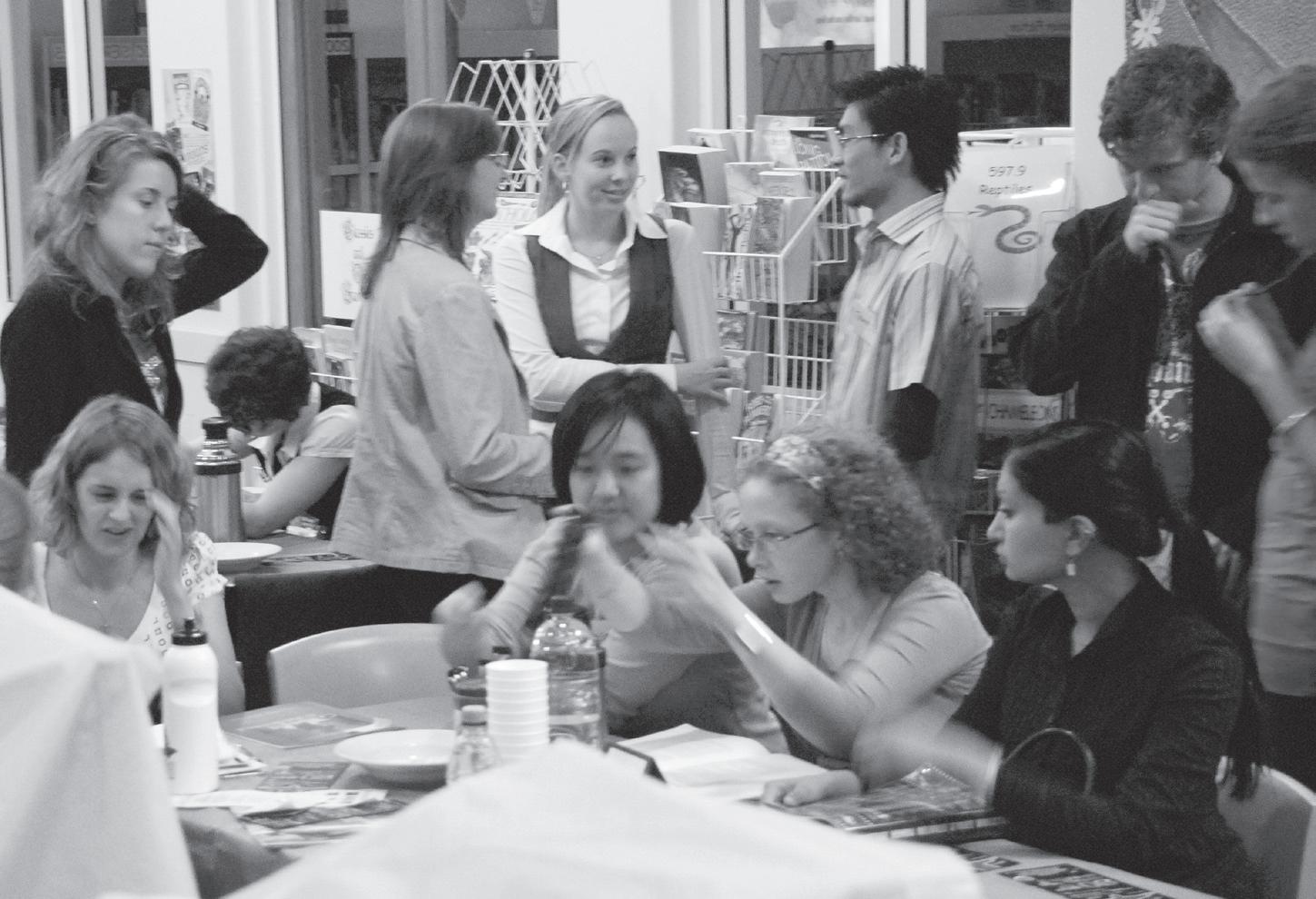
in marriage in a ceremony presided over by Auxiliary Bishop Don Sproxton.
Both the seminar series and pledge ceremony were the work of True Love Waitsa global movement that has been active in Perth since 2000, holding monthly open sessions into sex, gender and relationship issues. The True Love Waits team, headed
by President Stephen Gorddard, is keen to provide participants with opportunities to continue growing and sharing with each other and are investigating a similar seminar on scripture to commence shortly. For more information about True Love Waits and their future events, see www.truelovewaitswa.com or contact Stephen on 0431 228 630.
Denominations gather to focus on plight of poor
■ By Mark ReidyANSWERING a call to unite against poverty, over 200 people representing a wide range of denominations and political influence attended an Ecumenical service at St Brigid’s Catholic Church in Northbridge on October 14.
The Ecumenical service, entitled, “Australia – Rich Young Nation”, was coordinated by the Catholic Pastoral Centre to mark Anti Poverty Week, an Australia wide initiative that began in 2002 as an expansion of the United Nation’s annual International Poverty Day.
Among those witnessing a range of prayers, music and presentations was the Lord Mayor of Perth, Lisa Scaffidi, the Premier’s representative, Tony Simpson and the Mayor of the Town of Vincent, Nick Catania.
Introducing the event, Terry Quinn, Executive Officer of the Catholic Social Justice Council, stated that love and care for those who were disadvantaged was as essential to Christianity as Sacraments, Scriptures and worship. It was a challenge, he said, for Australia to use its recent economic prosperity to benefit all citizens, particularly those individuals and families who continue to struggle.
Mr Quinn said that the testimonies, role-plays and music presented on the day were expressions of the solidarity and commitment of those present to end poverty and exclusion.
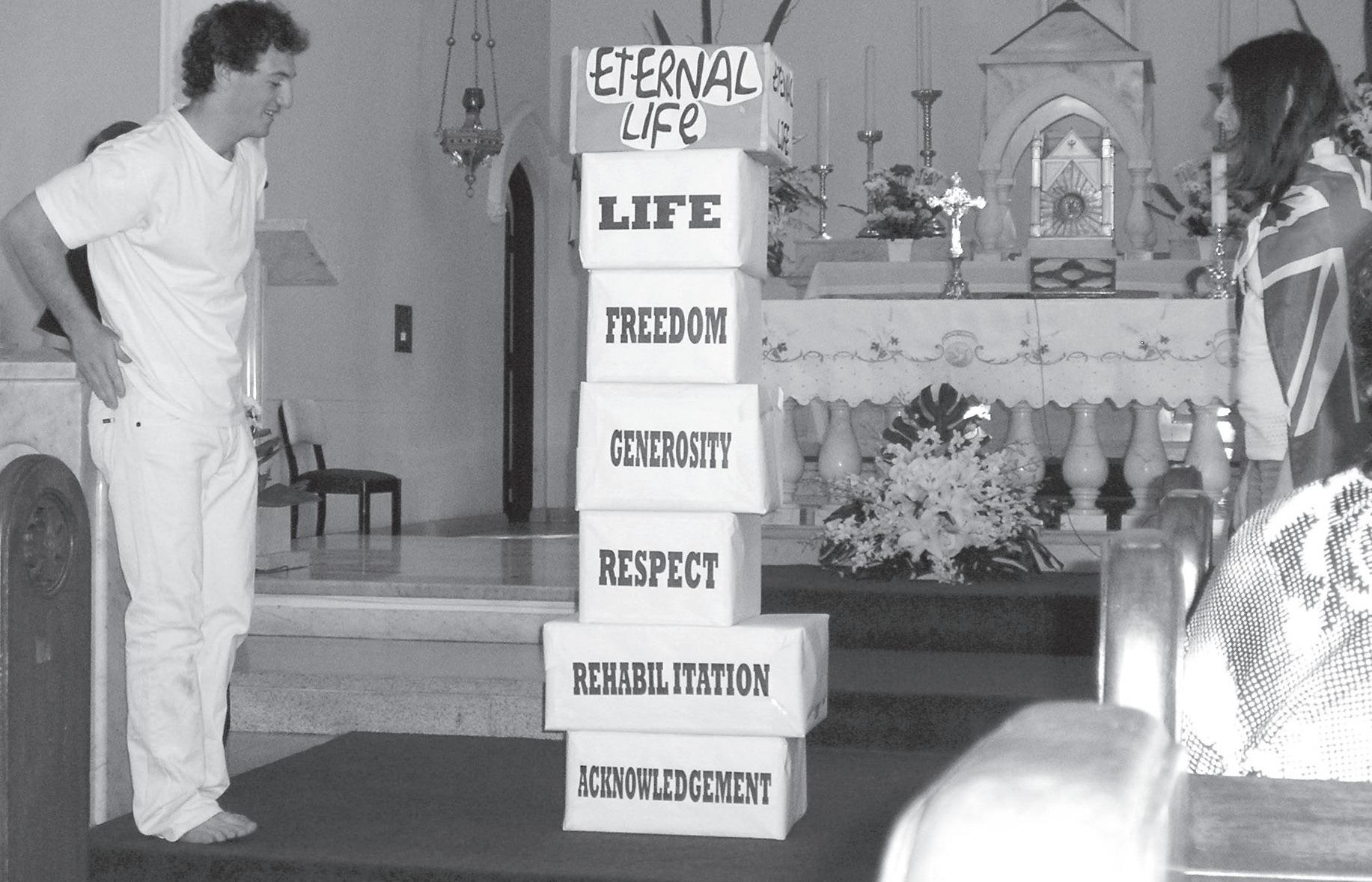
Church, the Religious Society of Friends (Quakers), The Salvation Army and the Anglican Church of Australia, as well as testimonies from Trevor Turner and Katrina Fowler who acknowledged the support of specific agencies in helping them transform their lives.
fect distribution of wealth that has created “the emergence of an underclass of gravely disadvantaged people”.
He said that there were now over two million Australians living below the poverty line, including over 400,000 children.



A drama presented by students from Acts 2 College of Mission and Evangelisation depicted Australia as the rich young man in Matthew’s Gospel who was faithful in law in the promotion of equality and care for all its citizens, but was not willing to put these into practice when he discovered that this would entail personal sacrifice.
The dramatisation occurred between prayers offered by representatives from the WA Council of Churches, the Uniting
Peter
Anthony
Mark
Robert
Mr Turner attributed the love and acceptance of volunteers from the Catholic agency, The Shopfront, in helping him step back from the brink of suicide to recognising God’s love, while Ms Fowler spoke of the role of the Balga Teen Parent Program in her transition from drugs, violence and homelessness to fulfilment as a loving and committed mother. She said that it was the people who walked alongside and supported her that provided the bridge from despair to hope.
Keynote speaker, Perth Auxiliary Bishop, Don Sproxton, concluded the gathering with a call to address the imper-
He acknowledged that the Federal Government’s policy of Social Inclusion had the potential to allow more Australians to take part in the economic, social and civic life of the nation, but said that the journey to fulfilling this reality began with the recognition of those on the margins of society as our brothers and sisters.
The best way to begin, Bishop Sproxton suggested, was for people to examine their own lifestyles and distinguish between what they wanted and what they needed.
“With this new freedom”, he said, “We will be in a better position to recognise the needs of others and really see the invisible poor at our gate.”
Whitfords parishioners set to crack the auction whip
 n By Robert Hiini
n By Robert Hiini
whiTFoRDS Parish are getting ready to crack the auctioneers hammer to raise money for ‘ragpickers’ in india – women and children who scour refuse dumps looking for discarded items they can sell.
The auction will take place on november 23 in the parish hall where goods donated by the people of Perth will be auctioned off for the cause.
The money raised from the event will be used by the Branches Project, a non-government organisation working to improve the lives of the poor in goa, india.
The organisation, founded by ex-Perth resident and former Record journalist, Joanna Lawson, promises that 100 per cent of all money raised will go straight to their food distribution and women’s collective projects.
in a region where one dollar will buy 2kg of rice and three dollars will buy a pair of thongs to protect the ragpicker’s feet from disease as they sift through rubbish tips, the positive impact of additional funds will be keenly felt.
The auction is being organised by Ms Lawson’s mother Jessie and fellow whitford’s parishioner Sheila Shannon.
They are still in the process of asking the people of Perth to dontate “items in good condition, gifts and gadgets excess to need.”
This is not the first foray into fundraising for Ms Shannon. Four years ago she helped organise a similar auction for oxfam at the parish. She was moved to action after seeing a Four Corners documentary on ABC TV examining the humanitarian situation in Rwanda 20 years after its bloodiest days of conflict.
Ms Shannon was particularly moved by the story of a father who carried his dying eight year old daughter for several days without rest to get to the nearest aid camp.
She decided she could do something to help here in Perth, showing the documentary to parishioners and holding a successful auction in the parish hall.
her fundraising experience in her native Lochwinnoch, Scotland, 28 years ago showed her that auctions are often the most effective and fun way to raise funds for charity.
Asking a local cooperative if she could use a shop they owned, she spent ten days selling items she had been donated only to have her profits dwarfed by a one-off charity auction a few weeks later.
“i thought to myself, that’s the way to go,” Ms Shannon said.
She says that she decided to get involved in the Branches Project after hearing about the plight of the poor in goa first hand from Joanna and Jessie Lawson.
“i was just touched by what they’re trying to do.”

Pray your own prayer in a very special way. Pray Patience (Solitaire) and on completion you have said the Rosary.
You receive TWO beautiful Holy Decks of Cards plus simple instructions.
Fr Rick McCann, parish priest of The Oaks (NSW), has developed these cards in order to encourage prayer, and also help fund a desperately needed new church.
The cards are of good quality and the picture cards are adorned with religious symbols. The king is represented by Jesus, our Lady is the queen and the jack is illustraed with the Holy Spirit.
For your boxed set, send a cheque or money order with your name, address and phone number to
Fr Rick McCann
Po box 169, The Oaks, NSW 2570
For more details call (02) 4657 1191
Visit www.prayingcards.net.au
Everyone can be a missionary

Perth students discover “the liturgy after the liturgy”
n By Robert HiiniShowing solidarity with the poor children of the world and recommitting to their missionary identity, students from 58 schools throughout Perth gathered to celebrate the sixth annual Children’s Mission Mass on october 22.
Students from 18 Catholic high schools, 38 Catholic primary schools and 2 public schools descended upon Sacred heart Parish Thornlie in an event jointly convened by Catholic Mission and the Perth world Youth Day (wYD) office.
School students made up the readers, servers and gift bearers with music provided by a youth choir made up of Sacred heart Primary, Mercedes, Corpus Christi, Lumen Christi and willeton Senior high School students under the direction of Thornlie parishioner Sandy Louis and Christina Vinci, a year one teacher at Sacred heart.
Francis Leong, the Diocesan Director of Catholic Mission, said the event had a threefold purpose: to encourage schools to continue their mission relationship with children in poverty throughout the world; to excite student leaders about evangelising; and to bring
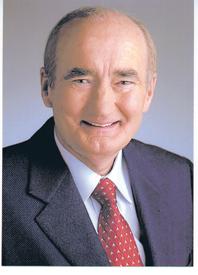
JOHN
the whole archdiocese together to celebrate our missionary calling.
Through Catholic Mission, schools throughout Perth contribute to some of the 2700 child health initiatives coordinated by the organisation in over 160 developing countries. however, mission is not something that is only to be practised overseas.
Matt hodgson, Liturgy officer at the Perth wYD office, formulated some ideas and activities for student leaders to mission in their schools that were distributed after the Mass. Student leaders, for example, could organise a talk at their school with a speaker who has had personal experience working with the poor or of world Youth Day. in his homily, Auxiliary Bishop Don Sproxton told students that the holy Spirit was ready to do wonderful things in their lives, and through them, in the lives of other people.
he spoke about the 15 year old Therese Martin, later declared Saint Therese of Lisieux, who jumped Papal security in Rome to beg Leo Xiii to allow her to become a nun, having a strong desire to mission. while her desire to be a missionary in the field was never realised, “she was a missionary already because she was concerned about the people in the world,” the bishop said. “Let us never forget that we are
JohnHughes
missionaries where we are, in our homes, in our schools and at work. giving witness to the holy Spirit working in our life.”
Anita Parker, the newly announced Director of Catholic Youth Ministry (CYM), distributed a business card-sized quiz to the students, asking them questions designed to provoke their own meditation on mission:
“who is the holy Spirit? how can we use power for good purposes? how can i grow in living a Christian life by becoming a witness for Jesus in today’s society?”
Ms Parker encouraged students to visit CYM’s website – www.cym. com.au - for more ideas on how to turn a desire to mission into practical realities.
Catholic Mission Director, Francis Leong, said that mission is “the liturgy after the liturgy” – which, like the Mass, is about engaging people in something larger than ourselves.
Quoting Cardinal Jose Saraiva Martins, Mr Leong said that “a Church that is not missionary is not the authentic Church of Christ’.
he said that mission only makes sense after the Eucharistic liturgy, where we receive the commission of Christ to go out and love in his name.
“Mission is the work of god in bringing about healing in the world, making a difference and helping to make it a better place.”
I’m John Hughes, WA’s most trusted car dealer
Is it true our company philosophy is “We are a friendly and efficient company trading with integrity and determined to give our customers the very best of service?”
Is it true I regularly publish testimonial letters from satisfied customers because of my tremendous reputation for outstanding service?
Is it true I believe that before anyone buys a pre-owned vehicle they should choose their dealer before they choose their car and that dealer should be mine? and...
Is it true I say this, because of my reputation for honesty, fair dealing, huge range of vehicles and non pushy salespeople.
Is it true when people do business with me, I guarantee they will be treated with courtesy, sincerity, professionalism and efficiency?
Is it true that I have over 40 technicians who are dedicated to getting my used cars in first class condition before sale?
Only $20 (includes postage and handling)
LifeLink wins plenty of parish support
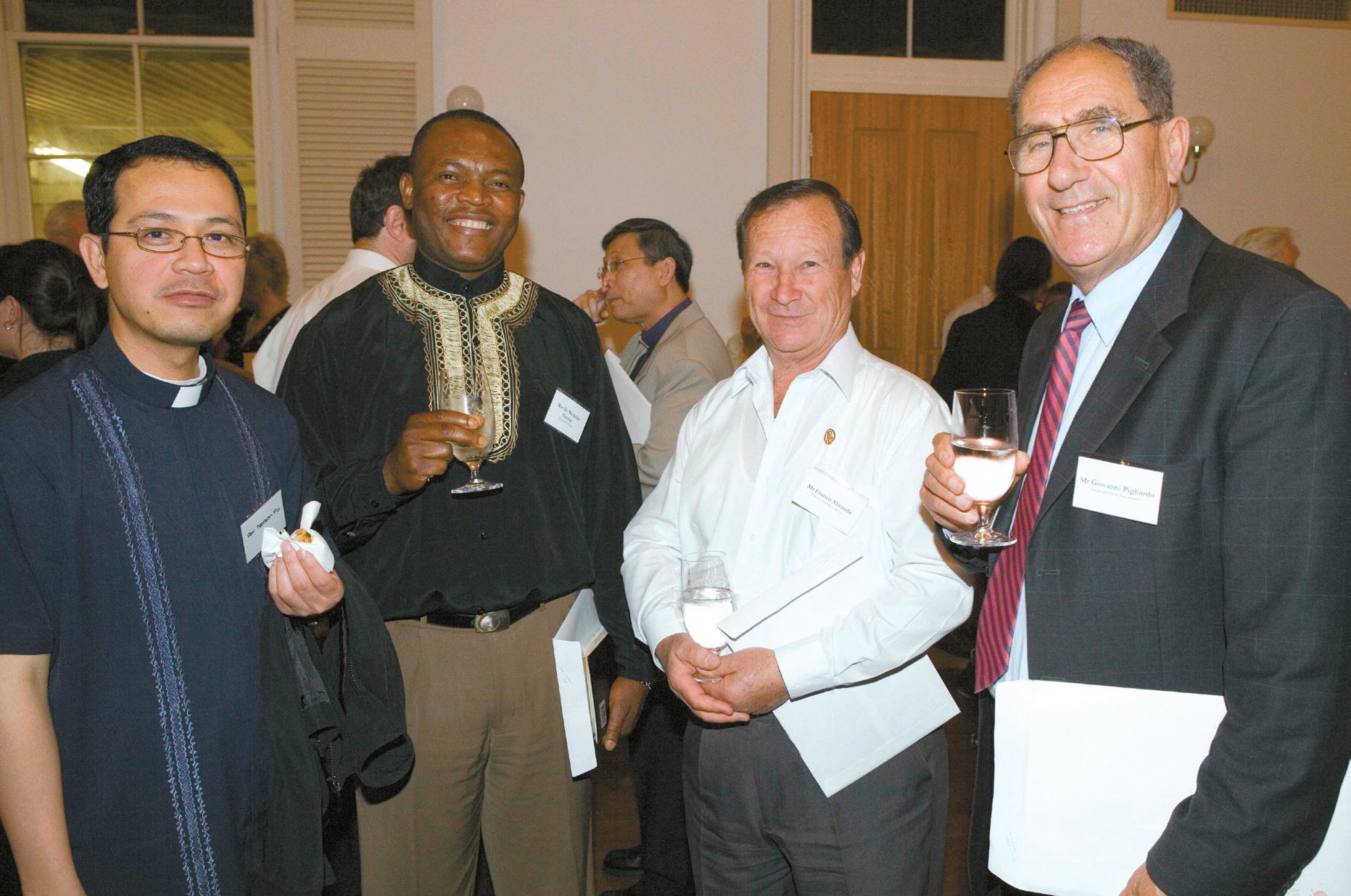
More than 70 per cent of all parishes in the Archdiocese were represented by Parish Priests and/or lay representatives at the liturgical launch of this year’s appeal at St Brigid’s Church, West Perth, on Wednesday night last week.
The appeal will be launched in parishes next weekend, November 8-9, with the main collection taken up the following weekend, November 15-16.
LifeLink is the organisation through which the Church funds 13 welfare organizations which deliver a wide range of services and support to more than 35,000 West Australian families and individuals each year.
All money raised in the appeal is distributed to the agencies. The target for this year’s appeal is $500,000.
Archbishop Barry Hickey told the crowd at the liturgical launch that the theme for this year’s appeal is Christ’s emphatic statement, “Whatever you do for the least of my little ones, you do for me” and with it his pledge that generosity to the poor will count highly in God’s judgement. Auxiliary Bishop Donald Sproxton expressed
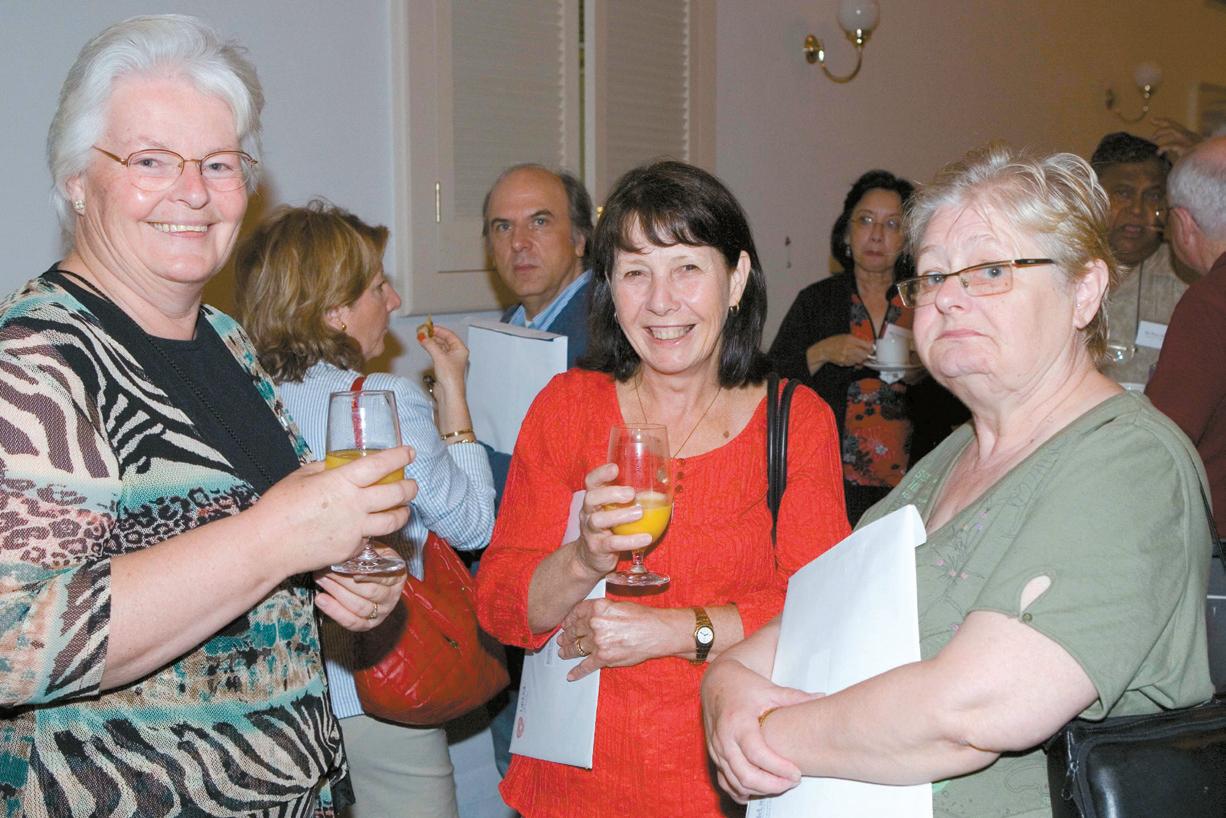
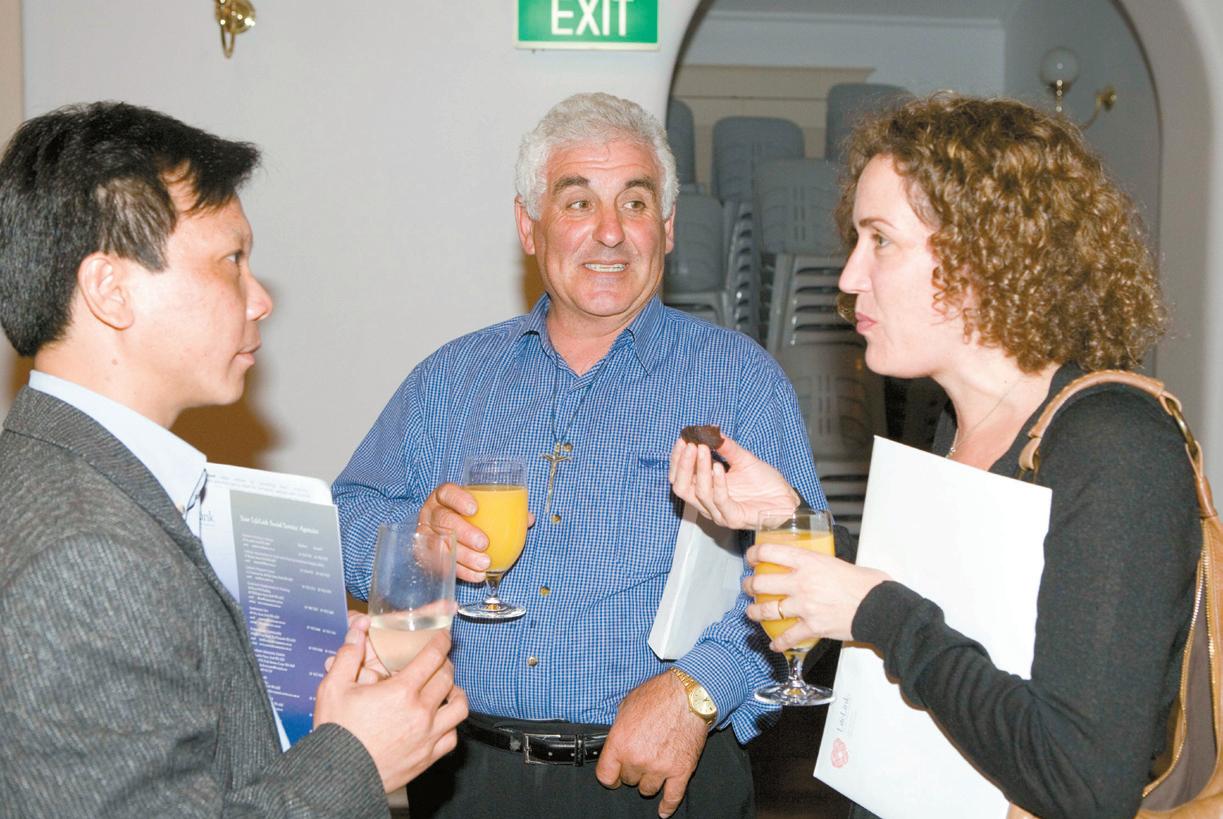

LifeLink’s gratitude for the generous support received in past years and invited priests and appeal representatives to do what they could to make parishioners aware of the
THE WOLRD APOSTOLATE OF FATIMA presents Evolution, fact or fiction
The apostolate will be hosting a talk on the evidence against evolution, presented by well know Catholic teacher and researcher, Paul Kelly. This will be an enthralling talk covering not just the scientific evidence against evolution, but also the deeper core issues concerning the effects of evolution on the Catholic Faith.
The talk will be held on Monday, 3 November at 7.30pm in the Catholic Pastoral Centre in Harold St Highgate.
On the two following Monday nights of November the WAF will screen the following DVD’s: Monday 10 November, 7.30pm – “Evolution, Fact or Belief?”. Then “the Young Age of the Earth”
Monday 17 November, 730pm - Fossil Evidence of Creation – The Footsteps of Leviathon. To finish the year off with a preparation for Christmas, the wonderful “Star of Bethlehem.
All are most welcome.
importance of LifeLink. On the appeal launch weekend, November 8-9, parishioners will receive an envelope containing a personal letter from the Archbishop outlining his thoughts on the appeal and the importance of the work being done by the LifeLink agencies.
Families are invited to take them home and discuss them before deciding on the family contribution, which can be placed in the envelope provided and placed in the collection on November 15-16 or any subsequent weekend.
Donations are tax deductible and receipts will be provided to those who put their name and address on the back of the envelope.
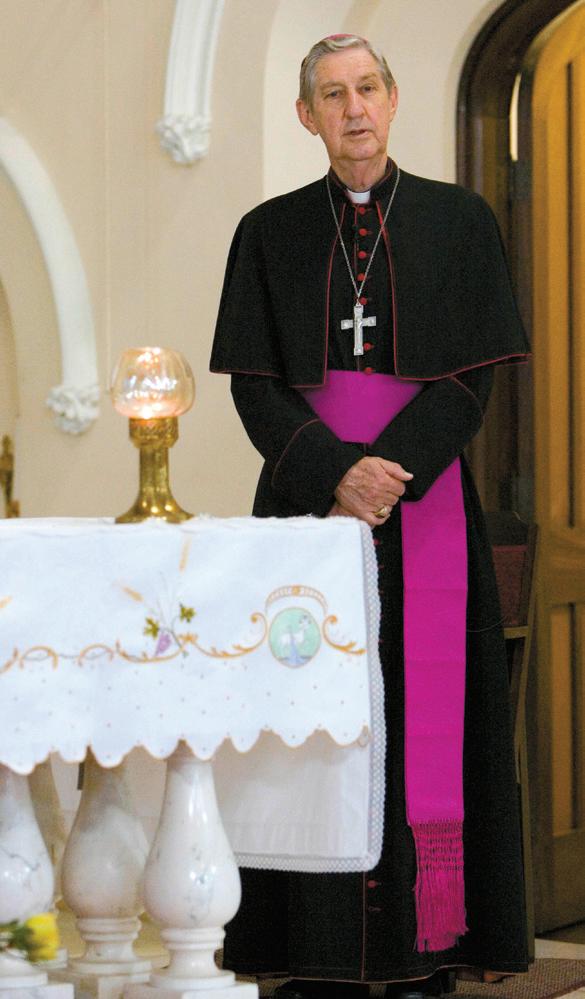
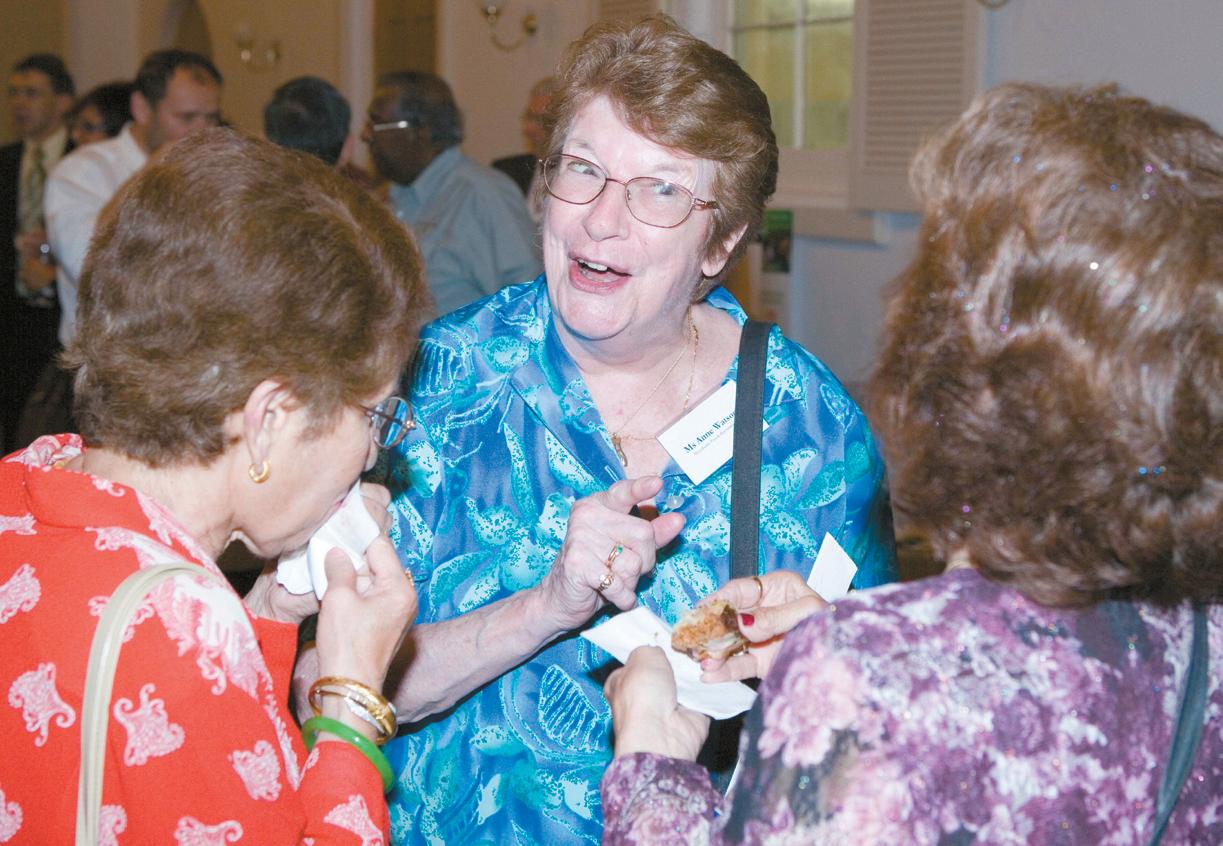
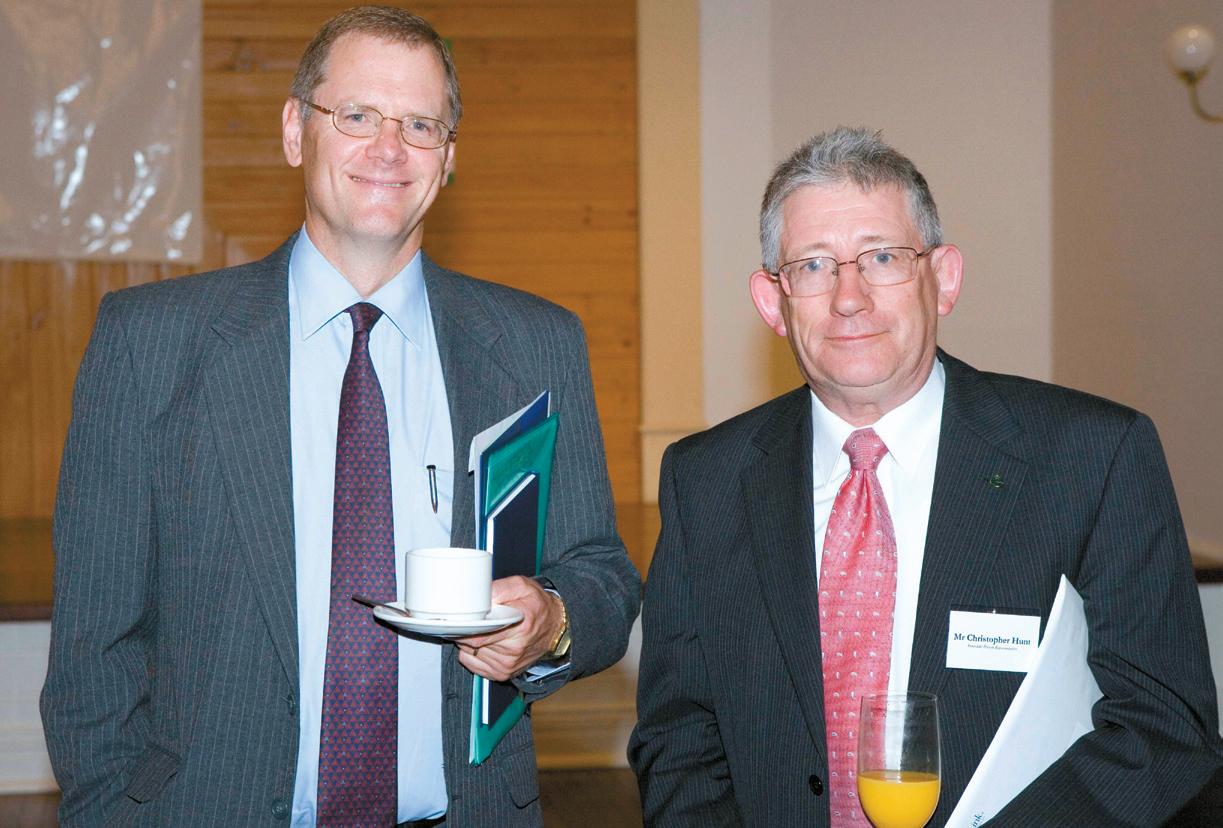

Vatican official calls logic of market immoral
 n By Cindy Wooden
n By Cindy Wooden
VATICAN CITY (CNS) -
Although many nations may be tempted to cut development aid in the midst of the international financial crisis, the crisis itself shows that an economic system focused only on making money for financial investors is bound to fail, said Cardinal Renato Martino.
The cardinal, president of the Pontifical Council for Justice and Peace, invited a dozen economics and development experts to the Vatican on October 23 to discuss how the financial crisis will affect development.
The discussion was led by Oscar de Rojas, director of the Financing for Development Office in the UN Department of Economic and Social Affairs.
Cardinal Martino told Vatican Radio that he invited the experts to
the Vatican “to help us understand the current situation and help us understand what the Holy See can say or suggest.”
In particular, he said, the Vatican wanted to speak to experts before the November 29-December 2 Doha Review Conference. The UN-sponsored gathering in Qatar will assess progress in getting nations to maintain the promises they made in Monterrey, Mexico, in 2002 to finance development projects in the Third World.
Cardinal Martino told Vatican Radio: “The logic of the market up to now has been that of maximum earnings, of making investments to obtain the greatest possible profit. And this, according to the social teaching of the church, is immoral” because the market “must benefit not only those who provide capital, but also those who participate in growing this capital by working.”
Too many families spend all of
their energy on simple survival and, despite working, have become poorer while financiers have become richer, he said. Too many people in the world are forced to emigrate and too many lack the basic necessities of life such as clean water and food.
“The financial collapse of the past few weeks demonstrates how the world really is one and how all people’s fortunes or disasters affect everyone else’s,” he said.
Despite an initial temptation to take care of one’s own nation first, he said, the crisis proves that people must engage in “a common journey to increase the well-being of all peoples.”
L’Osservatore Romano , the Vatican newspaper, said the participants noted that the US “is one of the countries that has had the most difficulty keeping its word” on the pledges made in Monterrey six years ago.
Bishops urge Catholics to do something they’re not used to: reading the Bible
Contiued from Page 1
“This bond must always be reinforced” through joint work on biblical translations, the distribution of Bibles, shared prayer, dialogue and study about differing approaches to interpretation and “the common witness of the word of God in a secularized world,” the message said.
The bishops said the fact that Christians and Jews both recognize and love the Old Testament calls them to an “intense encounter” with each other. In learning more about Judaism, Christians can learn more about Jesus and his disciples who were Jewish and can enrich their understanding of the Bible by studying Jewish traditions of interpretation, they said.
Because Muslims recognize biblical themes, figures and symbols and witness to faith “in the one, compassionate and merciful God, the creator of all beings and judge of humanity,” Christians also are invited to dialogue with them, the synod said.
Buddhists’ “respect for life, contemplation, silence, simplicity (and) renunciation,” Hinduism’s “sense
of the sacred, sacrifice, pilgrimage, fasting and sacred symbols” and Confucianism’s promotion of “wisdom and family and social values” also are fertile grounds for dialogue, the bishops said.
In their message, the bishops explained the various forms the word of God has taken: the spoken word that created the universe and can still be seen in nature; the Bible, the record of the history of salvation written under the inspiration of the Holy Spirit; and Jesus Christ, the word made flesh.
“Therefore, the word of God precedes and goes beyond the Bible,” the synod members said, so true devotion to the word of God excludes a fundamentalist reading of the Scriptures.
Fundamentalism “does not recognize that this word (of God) expresses itself in the Bible according to a human language that must be decoded, studied and understood,” said the synod message.
Auxiliary Bishop Santiago Silva Retamales of Valparaiso, Chile, vice president of the synod’s messagedrafting committee, told reporters that the Bible’s importance flows
Orissa expedites case of nun raped by Hindus
Nun says police watched attack but did not help
NEW DELHI (CNS) - The Orissa state government has decided to expedite the case of a Catholic nun who was raped during the recent anti-Christian violence in the eastern Indian state.
The move came after the nun spoke at a press conference Oct. 24 in the Jesuit-managed Indian Social Institute in New Delhi, reported the Asian church news agency UCA News.
The 28-year-old nun, who addressed the media with her face covered up to her eyes, was flanked by another nun and a female lawyer. Photographers kept aiming for her face, which she kept turned toward the ground.
She fought tears while reading a four-page handwritten statement recounting how Hindu fanatics attacked her. She said she had no faith in the Orissa police, whom she alleged refused to help her but aided her attackers. A day after the nun met the press, Orissa Chief Minister Naveen Patnaik convened a meeting in the state capital and directed officials to speed up the case.
The nun was raped on August 25, the day after Hindu fanatics began weeks of sustained violence against Christians in Orissa in response to the murder of a Hindu leader. The violence left at least 58 people dead.
Radical Hindu groups in the media accused the nun of not cooperating and of hiding from the police. They also demanded that she marry her rapist.
The nun met the press three days after the Supreme Court rejected a church petition that sought to have the Central Bureau of Investigation, the premier federal investigation agency, investigate the rape.

Shame: A Catholic nun, centre, who was raped during anti-Christian violence in the Indian state of Orissa addresses a press conference in New Delhi on October 24. The nun recounted how h indu fanatics attacked her. Ph OTO : u CAN
The Supreme Court asked the nun to cooperate with the state police investigation after the Orissa government said in an affidavit that the investigation into the case was progressing and that police already had arrested eight people.
Speaking to the media, the nun recalled: “They threw me to the veranda on the way to the dining room, which was full of ashes and broken glass pieces. One of them tore my blouse and others my undergarments.”
She paused, sobbed and wiped her tears before continuing to read, “They pulled out my sari and one of them stepped on my right hand and another on my left hand and then a third person raped me.”
The nun said the police saw her being attacked and paraded half-naked but ignored her pleas for help.
The details of her story were supported by Father Thomas Chellen, who had fled with her when they were trying to escape the fanatics.
He told Catholic News Service that, when the two were dragged from their hiding place, it was like “our crucifixion parade,” and corroborated her story, including details of police inaction.
PRINCIPALSHIP
HOLY ROSARY SCHOOL, DERBY
Famous for its wide skies and unique landscape which combine to produce stunning silhouettes, Derby, on the edge of King Sound, is located 2354 kms north of Perth and 220 kms from Broome. It lies in the heart of the Kimberley at the beginning of the Gibb River Road.
from the fact that it is “a place of encounter with the Word who is Lord.”
“A book cannot listen, a book cannot console, a book cannot challenge, but the Lord does,” he said.
Documenting the creation of man and woman, their struggles with sin and oppression, God’s liberating action and his gift of salvation in Jesus, “the Bible contains the model for the process of liberation,” Bishop Silva said.
In Latin America and many other parts of the world, he said, the poor come together to read the Bible, and they are touched by Jesus.
“They come aware of their dignity as men and women. They come to understand better and act on their identity as disciples of Jesus Christ,” the bishop said. “And, little by little, the conviction and enthusiasm of being Christian leads them to a new commitment in society, bringing to it the leaven of the values of the kingdom of God.”
The English version of the synod message can be found online at: www.vatican.va
Holy Rosary School is a co-educational Catholic primary school catering for approximately 245 students from Kindergarten to Year Seven. In 2008, a three year old Kindergarten program commenced.
The school was established in 1954 by the St John of God Sisters who remained until 1988 when the De La Salle Brothers assumed leadership of the school.
The school has a dedicated Literacy Coordinator and is committed to improving and raising the literacy and numeracy standards of the students. The school participates in the Kimberley Literacy Program, Reading Recovery and First Steps (Mathematics) programs. A vibrant partnership exists with the Derby Public Library and Aboriginal Studies is an important part of the curriculum. Aboriginal Teacher Assistants are a valued teaching aid and an important link between the school and family.
The Bluearth (physical education) program runs throughout the school and there are a variety of extra curricula activities available for the students, such as Homework Centre and Active After School Program. Holy Rosary is currently introducing the use of Electronic White Boards into the curriculum.
There is an opportunity for this position to be offered as a secondment; the successful applicant will take up the position on 1 January 2009. Applicants need to be practising Catholics and experienced educators committed to the objectives and ethos of Catholic education. They will have the requisite theological, educational, pastoral and administrative competencies, together with an appropriate four year minimum tertiary qualification, and will have completed Accreditation for Leadership of the Religious Education Area or its equivalent. A current WACOT registration number must also be included. The official application form, referee assessment forms and instructions can be accessed on the Catholic Education Office website www.ceo.wa.edu.au. Enquiries regarding the position should be directed to Helen Brennan, Consultant, Workforce Relations & Development Team on (08) 6380 5237 or email wrd@ceo.wa.edu.au. All applications, on the official form, should reach The Director, Catholic Education, Catholic Education Office of Western Australia, PO Box 198, Leederville 6903 no later than 12 November 2008.
Cardinal hopes Mosul tragedy alerts world
1500 Christian families have fled Mosul
■ By Carol GlatzVATICAN CITY (CNS)Cardinal Emmanuel-Karim Delly of Baghdad, Iraq, said he hoped the tragedy of violence and threats against Christians in Mosul finally would spur world leaders to work together to bring peace to his country.
The Chaldean Catholic patriarch, who was attending the October 5-26 Synod of Bishops on the Bible, said he was thankful for the increased attention and concern for the plight of his country’s Christians.
“But I would have liked this (concern) to be shown before the last minute,” he said in an October 23 interview with Catholic News Service.
Perhaps the recent events in Mosul were “divine providence in order to wake up people a bit from their deep sleep,” he said.
The cardinal expressed sadness over what he viewed as a chronic lack of concern and concrete action to stop the violence and protect all of Iraq’s citizens.
Saying he was referring to “not just the Americans, but the whole international community,” the cardinal said, “Up to now you have been silent and you have not spoken about us despite all of the sufferings we have had to bear the past three or four years and more than half a century.” Iraq is

Desperation: Displaced Iraqi Christian families wait
in the town of Hamdaniya Oct. 17. Christians in Iraq have been targets of sectarian attacks; in October, more than 1,500 Christian families fled the northern city of Mosul.
one of the poorest countries in the Middle East, he said, despite being rich in natural resources such as water and petroleum.
The cardinal called on people not to be “greedy toward their brothers and sisters who live in a foreign country like Iraq,” but for politicians and people of good will to band together for the good of all humanity.
The patriarch said what Iraq
Chinese parish advertises in newspapers inviting attendance
TIANJIN, China (CNS) - St Joseph’s Cathedral in Tianjin has been placing advertisements in newspapers, inviting people to “come and see” the Catholic church.
The parish priest, Father Leo Zhang Liang, recently told the Asian church news agency UCA News that he believes St. Joseph’s is the first parish in mainland China to place such ads, which contain contact information and catechism class schedules.
The cathedral, well known among local people as Xikai Church, stands in a downtown area that was called Laoxikai in 1914, when construction on the church began.
Since the ads were placed in four dailies in mid-August, the cathedral has received about 20 phone calls every day inquiring about the Catholic Church or catechism classes, Father Zhang said.
The ad read “An encounter with Xikai,” without mentioning religion or the Catholic Church. Church sources told UCA News that Catholic leaders had been advised to avoid using words like “Catholic” or “catechism” during the Beijing Olympic Games in August. In later
Vatican finishes work on psychological test
VATICAN CITY (CNS) - The Vatican has finished work on a long-awaited document on the psychological testing of seminary candidates. The document, titled “Guidelines for the Use of Psychology in the Admission and Formation of Candidates for the Priesthood,” was to be released at a Vatican press conferenceon October 30. Prepared by the Congregation for Catholic Education, the text was being
ads, the text became more explicit, such as the invitation, “Want to know about Catholicism?” Father Zhang said some journalists of the papers in which the ads were placed approached the parish and became catechumens.
Father Zhang said the idea of advertising in local newspapers came from a layperson who had advertised his home for elderly people the same way.
Xikai Church, located behind several shopping malls, is open daily to the public. Posted on its gate is a sign with Jesus’ words, “Come and See,” in Chinese characters. During the holiday week around national day, Oct. 1, the church was visited by as many as 5,000 people in a day.
Parishioners told UCA News they also were considering other ways to evangelize. They plan to produce reusable bags with inspirational words such as “God loves you” printed on them. With 30,000 Catholics, Xikai Church is the largest parish in the Tianjin Diocese, which is based less than 70 miles southeast of Beijing. Last year, the church recorded 706 adult baptisms.
issued in several languages, including English. The congregation has worked on the document for at least six years. In 2005, Pope John Paul II told the education congregation that a candidate’s ability to live a life of priestly celibacy must be “carefully verified” so that there is moral certainty about the candidate’s emotional and sexual maturity. Sources have said one reason the document took so long to prepare was that the psychological testing of priesthood candidates remains a controversial issue at the Vatican.
needs is not just material aid, but the concerted “moral support” of all world leaders to ensure peace and normality return as soon as possible.
Greater attention and pressure are needed so that the Iraqi government can “be just and fulfill its duty toward its citizens,” he said.
The rights of all Iraqis, including those of the Christian minority, must be protected, he said.
“We Christians don’t want privileges; we want our rights in full, and our rights are to live in peace and tranquillity,” and to have the same rights as “our fellow Muslim, Arab, Kurdish brothers and sisters,” he said.
The Iraqi government “wants to do the right thing,” but it is weak and unable to carry out its promises, said Cardinal Delly.
The government “must be sup-
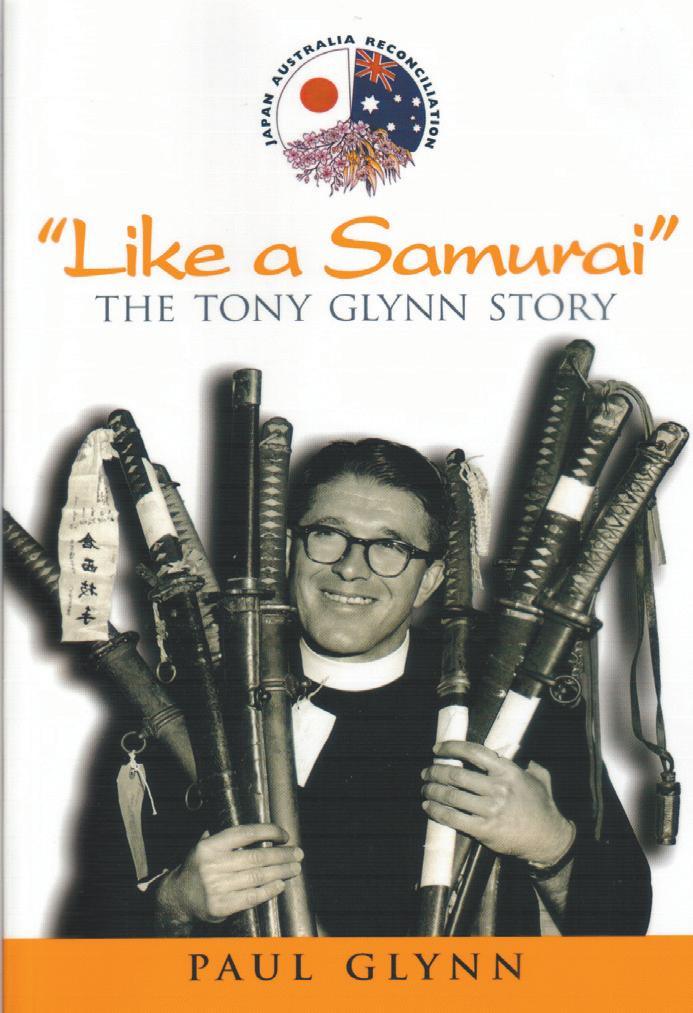


ported,” not just by the United States, but by the whole world; even the smallest or poorest nation could do something, he said.
Just as a building that is abandoned is more likely to be vandalized, Iraq needs to be kept on the world’s radar and its future at the top of the agenda, he said.
He said that, unfortunately, there are people in Iraq who do not have the country’s best interests at heart, but perhaps that would change “when they see the whole world loves Iraq and then they, too, will love their fellow brother and sisters with whom they have lived for many years.”
Cardinal Delly said Iraqi Prime Minister Nouri al-Maliki met with his auxiliary, Chaldean Auxiliary Bishop Shlemon Warduni of Baghdad, and other Christian leaders for talks in Baghdad on October 22.
Concerning the violence and mass emigration of Christians from Mosul, the prime minister promised the Christian delegation “he would do whatever was possible because he himself said Iraq cannot live without its Christians,” the cardinal said.
Cardinal Delly said that while he has been at the synod he has been expressing his concerns through letters to Iraq’s top leaders, including the leading Shiite religious authority, the Grand Ayatollah Ali al-Sistani. Bishop Warduni met with the ayatollah on October 21, the cardinal said, adding that the Shiite leader promised to tell his followers that Iraqi Christians and Muslims “are brothers and sisters in this country.”
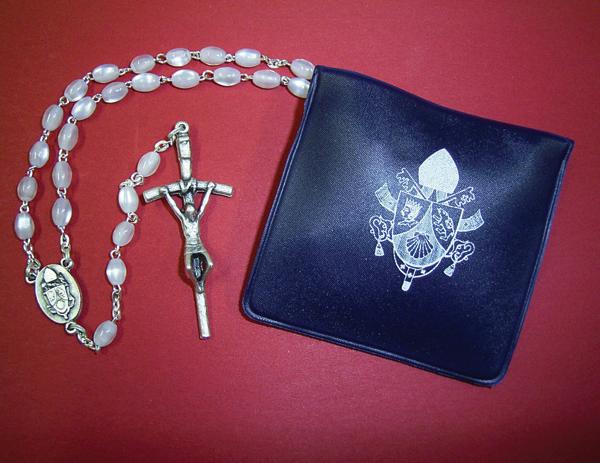
A great weekend for celebration
There’s Christmas, and Easter, and Pentecost … the three great feasts of God’s direct involvement in the life of humanity … but after them, this coming weekend, November 1 and 2 may be the greatest occasion for celebration that we have.
This weekend brings us All Saints Day and All Souls Day, the two great feasts when we celebrate humanity’s direct involvement in the life of God. These two feasts can truly be described as the fruits of Christmas and Easter and Pentecost. They are the time to celebrate the beauty and wonder of what happens when we cooperate with God as He works in our lives.
The story of the Saints goes back to antiquity when the faith and obedience of people like Noah and Abraham and Moses enabled them to leave bright lights that still show us that God’s way is the best way for mankind. The story continues through the Old Testament in the prophets and those who followed their advice, and in the Psalmists who could write so beautifully about God only because they knew Him.
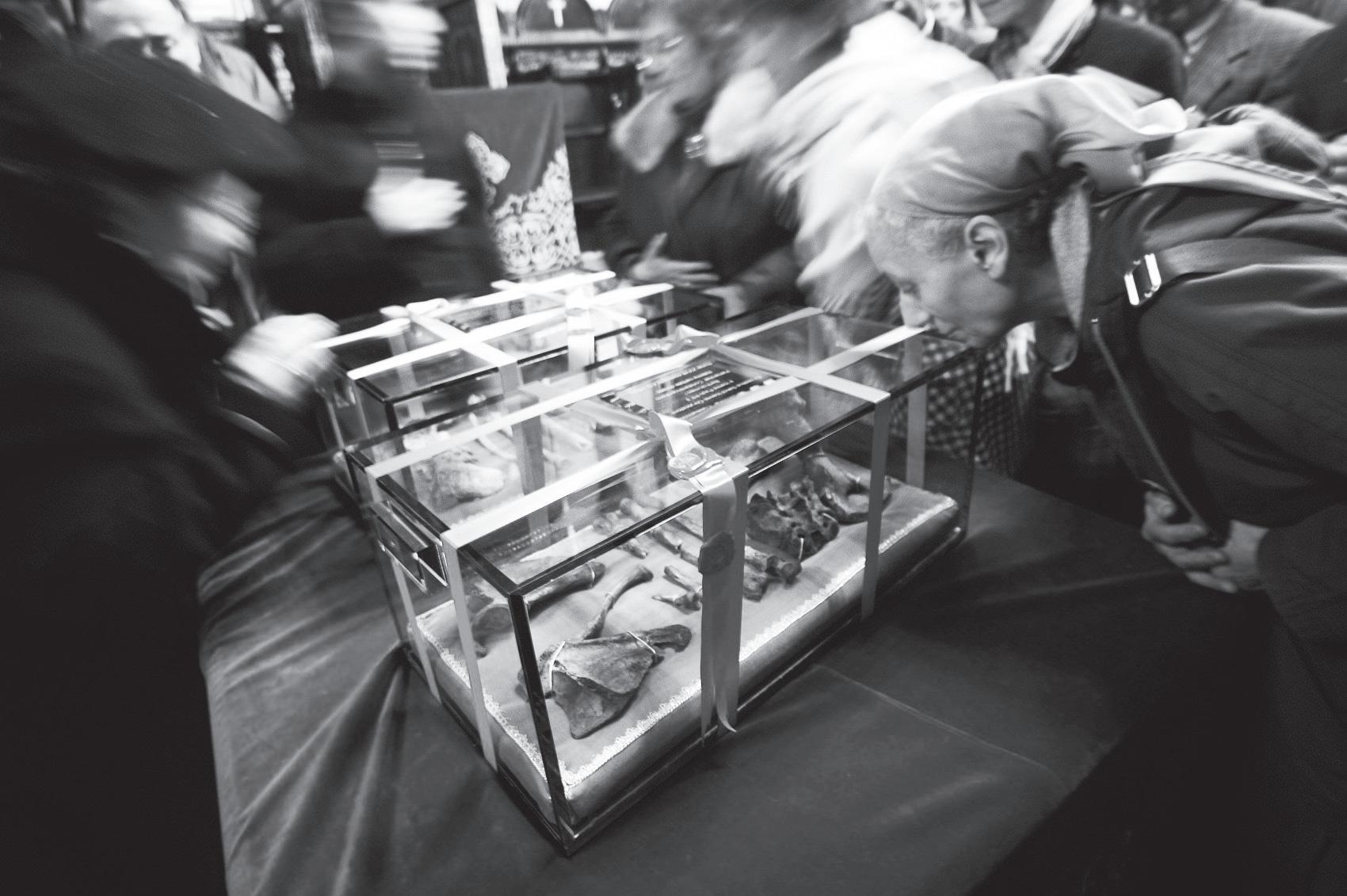
There was a veritable explosion of sanctity when Jesus came to bring us the fullness of God’s revelation … in his teaching and in his resurrection.
Beginning with the Queen of all Saints, Mary, the Mother of Jesus, and St Joseph, her husband, and continuing through the Apostles to St Stephen the first martyr, sanctity takes on a new dimension which marks out in bright lights the truth and beauty that follow faith in Christ and obedience to his will.
Over the 2000 years of the life of the Church, saints have appeared in every corner of the globe and in every circumstance of human life. Being blind, crippled, abandoned by family, illiterate, learned, slaves, and even kings and queens … no circumstance has prevented people turning to God and flourishing in his love.
Nor has there been any time in that 2000 years when sanctity has not flourished on earth. Even our own murderous and scornful times have not been short of such wonders as St Pio of Pietrelcina (Padre Pio), St Edith Stein, St Maximillian Kolbe, the former slave St Josephine Bakhita and numerous other 20th Century saints.
Not only were the saints wonderful examples in their own lives, but many were able to inspire hundreds, and eventually thousands, to follow them in the Religious Orders that contributed so much over the centuries to establishing schools, hospitals, orphanages and all manner of support for the blind, the lame, the halt, the lepers, the outcasts, the prisoners, the aged and all others who need help. It is part of the great vitality that the love of God brings to mankind. New religious orders continue to spring up wherever God calls them to serve his people in their needs.
The RecoRd
PO Box 75
Leederville, WA 6902
cathrec@iinet.net.au
Tel: (08) 9227 7080
Fax: (08) 9227 7087
All of these remarkable people are united with us in the Communion of Saints, the wonderful truth that we are all united with one another and in that unity united with God. All of us, the living and the dead (who are not dead, but living differently) are united and can call on one another for help. Just knowing that we are united with the saints is enough to give us strength at times when we doubt the quality of our faith or commitment. They are in heaven waiting for us; they are an assurance that the grace of God is real; a demonstration of what Jesus meant when he said “In my father’s house there are many mansions”.
When dying on the Cross, Jesus gave us to Mary to be her children and then he took her body and soul into heaven. He is sure to listen to all her requests to be reunited with the children he gave into her care. This should be all we need to pray with the utmost confidence for all those who have died, but who may not yet have completed their journey of purification. The Apostle James reminded us that it is a holy and a wholesome thought to pray for the dead, and Mary herself has told us that many souls need our prayers. She also told us (via St Catherine Laboure in 1830) that many of the graces God grants her to dispense to her children are not used simply because we do not ask for them. Most of the miracles in the Gospels came when Jesus prompted people to ask for what they wanted.
All Souls Day, and indeed the whole of November, is a time when we are especially reminded to pray for the dead. They are depending on us doing our part in the Communion of Saints by asking for their release into the life of God in heaven.
Thanks from Sisters
We wish to thank the The Record for running a notice for us requesting donations of Catholic books, bibles, missals, Divine Office, Liturgical books and Altar vessels etc. and especially to express our gratitude to those who have made donations. We thank you and ask God to bless you for your kindnesses. Holy Mass is celebrated for you.
Recently, we have received a number of calls asking for information about us and what use the books are put to:
The Sisters of the Dormition of the B.V.M. live a traditional contemplative life of prayer and work in silence and solitude according to our rule of life (Benedictine) with a tender devotion to Mary, the Mother of God.
A good homilist
To me the criteria of a ‘good homily’ are:
l It must not be a sermon,
l It must take only five minutes or even less,
l It must not be just a repeat of the gospel-extract just read,
l Its point must be worth remembering and hence be remembered.
I have been a congregation member (sometimes much more) of thirteen parishes over four Australian States.
The only homily I remember is Father George O’Leary preaching on “What does it profit a man to gain the whole world and suffer the loss of his/ her eternal soul?”
I came home, picked up the Sunday paper to find that a certain ‘wealthy business man’ had died suddenly overnight, and alone – at his farm.
I do remember another occasion when the preacher waxed strongly about how “a house built on sand will not last”. I mentioned, after Mass, that all houses in Perth are “built on sand”.
I have often asked my friends, after Mass, “What was the homily about?” Many have sheepishly replied that they ‘opt-out’ at sermons. I, personally, would be quite content with a homilyless Mass with a simple pithy ‘thought for the week’ (two minutes).
Perhaps a short entertaining story from ‘ Lives of the Saints’ related to the Gospel – Saint for the week.
Peter Tilley
Trigg Island
But what makes one?
What constitutes a good homily? The homily is deliverd on the Gospel of the day, which is an integral part of the Eucharist.
It is a good homily when it makes a connection with the meaning of the Eucharist and our part in its celebration. The goal of the homily should be to elicit a covenant response in our daily lives to Christ’s invitation “Do this in memory of me”
Fascination with the Gospel event may lead to an academic exploration of the text in isolation, but the whole Jesus story finds its sacrificial meaning in Christ’s words and actions portrayed in the Gospel account of the Last Supper which is what we sacramentally re-present in our Mass.
The good homilist will make the connection between the Gospel event and what we bring to our Eucharist, together with what we take away from the Eucharist to be lived in the coming week.
If the homily fails to do this it may be effective as it stands, but the point of the insertion of the Gospel into the Mass is missed.
I have been blessed to have experienced, on the whole, good quality homilies in the various
We run ‘Tydewi Bindery. ‘Ty’ means house; ‘Dewi’ is St. David of Wales. The bindery at the house of St David is a small hand-bindery where we make traditional hand-crafted books; repair, restore and conserve both antique and modern texts.
We offer secondhand catholic spiritual reading at extremely low cost which helps to cover our fuel expenses in collecting the donations.(plus p&p if mailed out ).
Older books, missals, breviaries,Liturgical and Church texts, are restored and redistributed or they may placed in a special collection.
To this end we seek donations, free of cost, of historical and liturgical interest especially of early date, pre15thC thru 20thC.
The Altar vessels and church items are cleaned, repaired and regilded/silvered as may be possible with the help of Mr. Bonolo, and put back into service in the Church. Or they may be reserved for the collection.
The purpose of the collection is to bring together a glorious visual liturgical and historical library which can be exhibited and made available to the faithful and scholar alike, to the glory of God.
We are grateful for all donations of any age and any condition. If you can help our phone no is (08) 9293 3092.
From The Office of Tydewi Bindery
The Sisters of the Dormition of the Blessed Virgin Mary, Kalamunda
parishes of which I have been a member and most notably in my present parish.
Neil. K. Smith Bull CreekTeen’ conference was great
I would like to comment on the ACTIV8 teens conference held at St Norberts college from September 30-October 2.
This event showcased youth activities from throughout the Perth Archdiocese and had delegates from Perth and Bunbury Archdioceses. The level of energy and Christian devotion of the Young people running the event was an uplifting experience.
I also had the pleasure of being involved as an Adult Assistant in the YCS workshop facilitated by Vicky Burrows AYCS representative. What inspired me most about the YCSWorkshop was the confidence and ability to share their faith of the young YCS members (ranging in age from 14-17] who helped run the event.
These young people ably stepped up to the example of Cardjin using roles of SEE JUDGE ACT, they gave performances on a DVD filmed, created and acted in by these YCS members.
The evidence of Faith in action was applied to everyday situations that young people may face in their schools, at home and with their friends.
The modern Church in my opinion is in very good hands as young people take on leadership positions and speak the message of Christ to their peers. God is Good.
Mrs Bernice Roche YCS Corpus Christi CollegeShaking hands not for me
Yesterday I went to midday Mass and did not enthusistically
shake hands with everyone in the church, uttering glad little yelps of conviviality.
I was feeling prayerful, and had recently suffered a considerable personal loss. Two of the congregation, however, insisted with some force in crossing the aisle and shaking my hand, out of a sense of correcting a straying sheep I felt.
Have you noticed how aggressive a hand shake can be? Refuse it and you have a fight on your hands. Perhaps in future I will stand in the foyer for this section of the liturgy and just return for communion. At least it would be more reverent.
Peter Gilet Albany
Church concert concern
I recently attended a concert at St Patrick’s Basilica in Fremantle. While I found the concert most uplifting, my enjoyment was marred by the lack of reverence given to Our Lord present in the Blessed Sacrament. As far as I know, Our Lord was present in the tabernacle, yet few people genuflected or acknowledged His presence during the course of the concert.
I find it hard to understand how permission can be given for concerts to be performed in a church without due respect being given to Our Lord.
While I understand music can be a form of worship/adoration/ honour given to the Almighty, it doesn’t change the fact that if Our Lord was present in the tabernacle, then the audience should have been made aware of this fact so due respect could be given.
Unfortunately, this incident has affected my decision to attend further concerts.
Name and address supplied
Got a point of view? Write to The Record at: Letters to the Editor PO Box 75 Leederville WA 6902
VISTA
Finding God in daily work The way of solitude

When working at the Marriage Tribunal, I find regular prayer times almost impossible. I never know whether somebody is going to ring me up to discuss annulment or an aspect of Canon Law. I spend time gently talking and listening to our clients. I speak to them as respectfully as I would to God. It’s important to be consistent with others.
How I Pray Now
Formal and spontaneous prayers are very important. You need to be able to step back from the rush of life and make time for them. When I celebrate two to three Masses on a Sunday morning it energises me. To preside at the Mass is a privilege. Alternatively, I can sit down and read my prayers from the Office. I also love reading the Bible. It’s a real source of power and spiritual nourishment. There is a lot of clerical work to do here but I always keep in mind that it’s people we’re dealing with and their lives. That’s the most precious aspect of this job. It’s essentially pastoral work.

 with Debbie Warrier
with Debbie Warrier

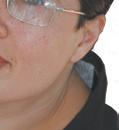
I am a different priest from who I was when I was first ordained. For a lot of my life I was a very nervy person. I preferred to be in the shadows rather than thrust out into the spotlight. Later on I discovered that I was prone to anxiety and depression. By the time I had been ordained for 13 years, I was suffering quite serious episodes of depression and anxiety attacks.
I went to my doctor and he put me onto a specialist. I started receiving cognitive therapy as well as taking psychiatric medication. Within weeks that changed my life.
Now I am the person I should have been from the start. This is the real me. I am the calmest person you can imagine and bring that sense of calm into my work.
I have a Doctorate in Canon Law and do projects as well as answering calls regarding this. Sister Gabrielle Burns and I interview petitioners, respondents or witnesses for marriage annulment. We take a lot of time with those interviews because they are very important in establishing the evidence for a case. I write observations as a Defender of the Bond. I get the evidence at the end of a case and write a report for the judges to show that the bond of marriage should be upheld. I write strongly because what is at stake is the truth and God’s saving justice. I do that at the local and national level of the Tribunal.
I bring who I am as a priest to all those things. Right at the foundation of that is my relationship with the Lord. I get on with Jesus very well. Even when I was going through that really difficult time with depression and anxiety I never lost that relationship with Christ. Following Him I pray to do the Father’s will. If someone comes into my life I see him or her as Jesus Himself.
Before Mass I pray, “Lord, whatever you want me to say, let me say that.” As the Gospel preaches I believe the words will be given to you when you need them. I also like silences in the Mass. I like to pause at times, just to savor that moment. By the time we get to Communion we should be hungering for the Bread of Life. It’s our spiritual food, the Body and Blood of Christ.
debwarrier@hotmail.com
“A lot of hermits listen to the morning news, and they know what they have to pray for.”
– Laura Meyers
Laura Meyers is a retired media studies academic with a love of art, an impish sense of humour - and a desire to be free of almost all human company.
The former Edith Cowan University lecturer is not, I hasten to add, someone who dislikes the human race to the point of turning her back on it in disgust at its general unpleasantness; quite the opposite.
Instead for approximately twenty years she has been living in modest suburban settings a relatively rare vocation in the life of the Church, one which stretches back to Christianity’s earliest times. She is a hermit.
This is how Laura and I come to find ourselves chatting in the loungeroom of a nondescript suburban home about, of all things, the eremitical life.
On the outside it may seem just like any other urban residence in a typical Australian street, but the inside of her brick duplex residence is filled with books on the spiritual life – although she’s currently giving away almost all of her library – and paintings on stretched canvases. Her great passion outside – or perhaps because of – the vocation of solitude and prayer, is art.
There are also mosaics leaning here and there against walls. Apart from painting, Laura creates mosaics using cut glass shapes until the finished icon created in the Byzantine tradition emerges from the seeming anarchy of the artist’s work bench standing outside the back door just feet away from her other passion – a beautifully maintained garden.
On Wednesday November 5 she will take permanent vows as a hermit before Archbishop Barry Hickey at Our Lady of Grace Church in North Beach.
When she does she will be the first permanently professed hermit in a long time in the Archdiocese of Perth, perhaps the first ever.
The permanent vows she will take (the evangelical counsels of poverty chastity and obedience) will be the culmination of a lifetime’s searching that has led her to many places but which she clearly remembers as having started at the age of five when she experienced something unlike anything else in her life – a clear and inspiring experience of the presence of God.
“The Presence is awesome, but not threatening. And you know this is the way you’ve got to go,” she says simply. “You’re still a kid, but it knocks you right out of your childhood.”
It meant that from then on she could not live the life of
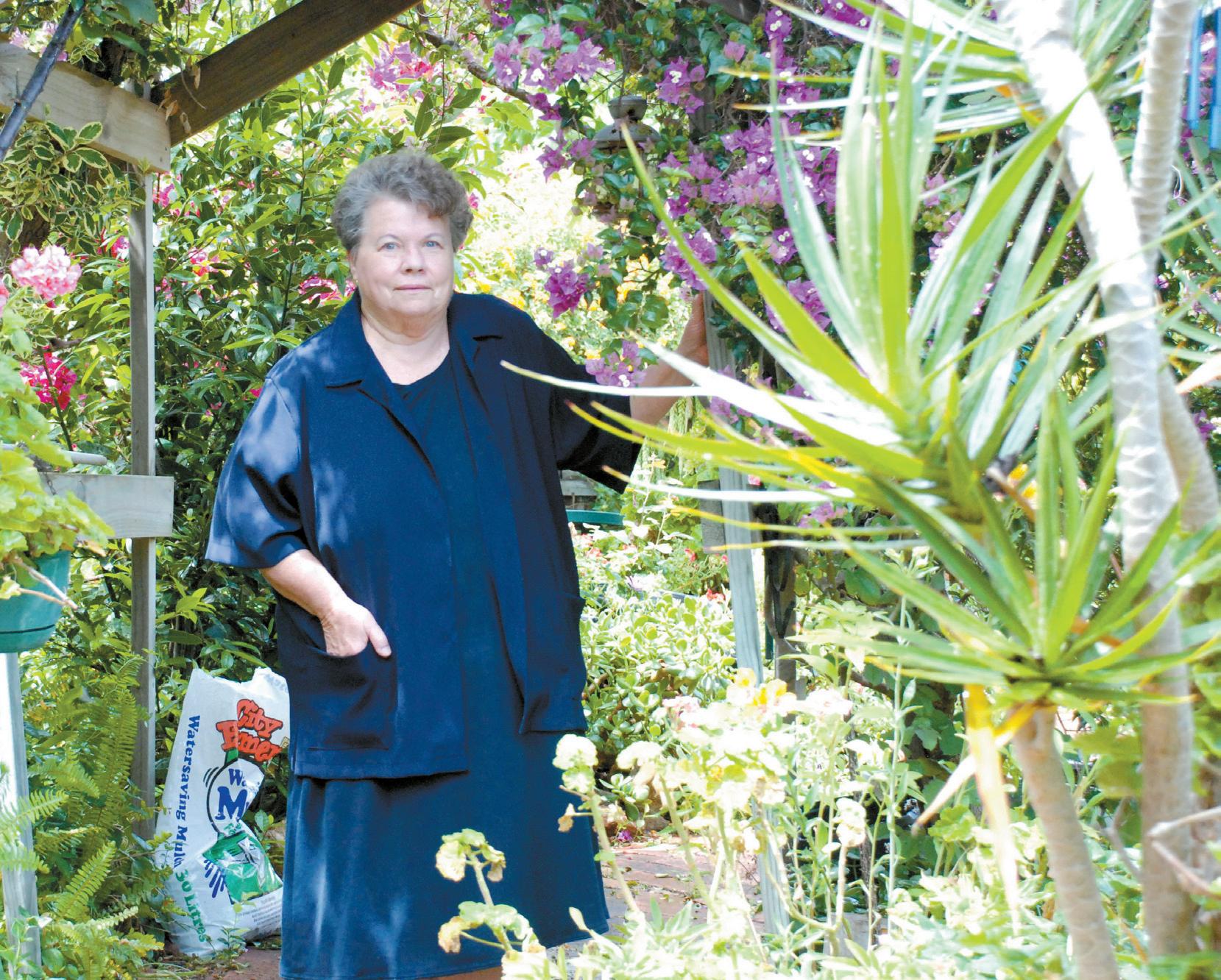
any other typical child growing up in the American Midwest; her youth, she tells me, was full of experiences such as raiding parish priest’s libraries in order to devour spiritual reading or heading off somewhere to be by herself with her thoughts.
She remembers the experience clearly but, just as St Paul was unable to describe the experience of someone taken up into the third heaven in his second letter to the Corinthians, human language simply fails to describe it adequately.
“It’s hard particularly when you’re so young you don’t know how to describe it even to your own self. But you want to keep going back to that same place.”
That experience clearly marked Laura out for life and also set her on her life’s trail. From then on she knew she had to search until she found what she was called to.
“I was the person who was always spending my summer going off to the woods, to live in a cottage so I could pray, think and paint,” she says of her later adult life.
A turning point came in the 1960s when she returned to the US after five years teaching abroad.
In Ohio she met a priest from Nova Scotia who introduced her to Baroness Catherine De Hueck Doherty, a Russian who had fled the October 1917 Revolution to Canada and who was to become a bestselling author of many spiritual books.
It was the Baroness, a convert to Byzantine Catholicism, who introduced the subject of ‘poustinia’ to the Catholic Church, and in so doing aided a rebirth of interest in the modern eremitical vocation.
‘Poustinia’ is the Russian word for the small cottage or building, a hermitage, in which an individual goes to pray and
fast in the presence of God.
But what do hermits do?
The chief way a hermit lives out his or her vocation is to immerse himself in a life of prayer and solitude as simply as possible and attend to the Presence – ‘the Presence’ meaning, of course, God.
Even now, in the contemporary mind the hermit is seen as something of a superheroic figure, a seeker into the heart of the ultimate mystery, a spiritual traveller or athlete.
It is, unlike some other things in Christianity, still a deeply popular if somewhat romanticised concept for the modern mind unaccustomed to deep introspection on almost anything at all.
Characters such as Obiwan-kenobi or Yoda from the popular Star Wars movies are modelled on something very much like the traditional Western Christian model of the alone, but self-sufficient, hermit.
One who has taken vows of the kind Laura will take before Archbishop Hickey places himself or herself under obedience to the Bishop of the diocese in which they live, and lives according to a Plan of Life.
The plan covers things such as prayer, spiritual reading, regular visits to a spiritual director, fasting, and frequenting of the Sacraments that the hermit will make the pattern for the rest of his or her life.
All of these are governed by Canon 603 of Canon Law, which also says a hermit should support himself or herself by work. For Laura, who often gives away her beautiful flowers and who is planning to exhibit her art in the North Beach parish soon, both the painting and gardening are her chief forms of work.
Through all of it, attentiveness to the Presence, as she refers to the ultimate loving
spiritual reality of God, praying for the Church and for the needs of the world become a hermit’s life mission. In a certain but very real sense, a hermit turns his or her back on the world precisely in order to focus on its greatest needs all the better.
Laura says that there are signs of a rise in interest in the eremitical vocation, but it is also a relatively rare vocation.
In the US there are about 100 or so Catholic hermits, and quite a few Anglican ones as well.
In Australia there are relatively few; some priests in the eastern states of Australia live the eremitical life unofficially.
“Yes, it’s making a comeback, but then it’s hardly a ‘tsunami.’ It’s a rare life. You have to be able to handle the solitude,” she says
Meanwhile, even though caves are, admittedly, something of a PR problem for the vocation of being a hermit, contrary to popular imagination hermits don’t live in caves never to be seen again.
“I’ve about had it up to here with cave jokes,” she says with a grin.
Hermits, even if they spurn human company, still, after all, have to shop, go to the doctor, and run errands.
Hermits may not socialise, says Laura (after all, that’s the point of being a hermit, isn’t it?) but they still look after their friends while they pray for the world.
“The way I look after my friends is once or twice a year I get a priest to celebrate Mass in the garden,” she says simply.
That’s not bad. In fact, what could be better?
- Peter RosengrenAnyone who would like to be present for the special Mass at North Beach at 7.30pm on November 5 is welcome and invited. Please RSVP to the parish on (08) 9448 4888.
Depressed by an apparently neverending parade of Hollywood stars and other similar experts calling for same-sex marriage to be made the equal of normal family life? Be of good cheer. Leading family demographer Alan Carlson explains why the intact nuclear family is our best hope for the future of the human race.
n Allan CarlsonHistorically low birth rates, the rapid spread of cohabitation, the legal dismantling of the institution of marriage, and climbing divorce are signs of a fundamental turning point in the social development of the West.
Certain powerful voices among the once Christian nations actually welcome these changes, as signs of liberation. They celebrate the disappearance of marriage as a meaningful cultural and legal struc ture with claims of its own on society and individuals. They relish the elimination of autonomous homes, once rich in func tion and loyalties, to be replaced by gov ernmental structures and the bond of the individual to the state. In pursuing this ideology, they have willingly sacrificed the natural order, building an unnatural world in its place.
Those of us who defend the authentic family must now face a daunting truth. To create a Culture of the Family for the 21st Christian Century, I believe that we need a new vocabulary that looks for ward rather than backwards, focusing on the phrase, “the natural family.” I want to highlight recognition of the natural family in five ways: as part of the created order; as imprinted on our natures; as the source of bountiful joy; as the fountain of new life; and as the bulwark of liberty.
The natural created order
Modern debates about marriage and family frequently pit the partisans of Biblical revelation against the advocates of science and evolution. In fact, the story of Scripture and science’s evolu tionary narrative actually wind up in surprising agreement over the origin and nature of the human creature.
People of biblical faith ‑ Jews, Christians, and Muslims alike ‑ find the origins of the family chronicled in Genesis 1 and 2. Here, God establishes marriage as an unchanging aspect of His creation, essential to the very foundation of the divine order.
Genesis affirms marriage as both sexual (“Be fruitful and multiply”) and economic (“fill the earth and subdue it” and “have dominion” over its creatures). In addition, it views marriage as innately monogamous, rather than polygamous.
What does science teach? The found ers of modern anthropology also held that marriage is an unchanging institu tion, universal in its basic elements and common to all humanity. As Edward Westermarck explained a century ago: “Among the lowest savages, as well as the most civilised races of men, we find the family consisting of parents and children, and the father as its protector.” Marriage bound this family system together, unit ing “a regulated sexual relation” with “economic obligations.”
Certainly there were differences in the marriage systems of distinct human cultures. However, the fundamental mar riage bond did not change. As a later anthropologist, George Murdock, wrote in his great 1949 survey of human cul tures:
The natural family in an unnatural

“Marriage exists only when the eco nomic and the sexual are united into one relationship, and this combination only occurs in marriage. Marriage, thus defined, is found in every known human society.”
In short, his work pointed to marriage as natural, necessary, and unchanging.
Contemporary evolutionary scientists actually agree. Writing in the journal Science, for example, paleo‑anthropol ogist C.Owen Lovejoy argues that “the unique sexual and reproductive behav iour of man ‑ not growth of the cortex or brain ‑ may be the sine qua non of human origin.” The evolutionary nar rative indicates that the pairing‑off of male and female “hominids” into some thing very much like traditional mar riage reaches back between three and four million years ago
In short, the invention of “marriage” and social “fatherhood” were the vital steps in human evolution.
True, it would be going too far to say that modern evolutionary theory has converged with the Book of Genesis, but it would be fair to conclude that research guided by evolutionary theory does agree with the author of Genesis that from our very origin as unique creatures on earth, we humans have been defined by hetero sexual monogamy involving “marriage” and “fatherhood” and by the special link age of the reproductive and the economic, a linkage in which two become one flesh.
According to the scientists, the evolution of marriage occurred only once, at the beginning, when “to be human” came to mean “to be marital.” Other cultural vari ations surrounding marriage are simply details.
Imprinted on our nature
While the main current of Western philosophy and social science rushed toward Marxist forms of understand ing in the late 19th and 20th centuries, a dissenting school of sociology offered an alternate analysis. The first of these dissenters was the French academic, Frederic Le Play, active in the 1870’s and 1880’s.
Le Play argued that human behaviour did not follow the theoretical schemes of his liberal and socialist contemporar ies. Rather, he identified and sought to explain the close relation between what he called the stem family and historical examples of stable, creative prosperity. This stem family held the nuclear dyad of husband and wife at its core, yet also embraced extended kin. He argued that this family form, “by a remarkable favour of Providence has within its very structure the beneficent qualities of the individual and those of association.”
It could be found in all creative peri ods of human history: among the Old Testament Jews, the ancient Greeks, the pre‑Imperial Romans, and ‑ until recent ly‑most of the three great 20th Century sociologists based their efforts on the legacy of Le Play: Carle Zimmerman; Pitirim Sorokin; and Robert Nisbet.
Carle Zimmerman, Professor of Sociology at Harvard University, wrote Family and Civilization in 1947. It traced the course of family structures through out the globe and across the millenniums. In describing the prospects for family reconstruction, Zimmerman embraced Le Play’s concept of the stem family, rela belling it the domestic family.
Importantly, Zimmerman insisted that
this domestic family model was not an expression of a dying or transitional past. It develops, Zimmerman said, “among all people who combine the benefits of agriculture, industry, and settled life with the commonsense idea of defending their private life from the domination of legislators, from the invasion of bureau crats, and from the exaggerations of the manufacturing regime.”
Born and educated in Russia, but expelled by the Bolsheviks in 1921, Sorokin in his book, The Crisis of Our Age, emphasised the tie of mounting social turmoil to the shrinkage of family size and the atrophy of family functions, most notably education. In turn, this resulted in social decay, mounting crime, declining fertility, and growing state coer cion merely to hold the crumbling social edifice together. The only feasible course was to replace “the withered [and sterile] root of sensate culture” by a new cultural order based on family relationships.
The third great sociologist in this tra dition was Robert Nisbet, whom I count ed as a friend and mentor, best known as the author of The Quest for Community and The Twilight of Authority. In the latter volume, published in 1975, Nisbet offered a passage of profound impor tance:
“It should be obvious,” he says, “that family, not the individual, is the real molecule of society, the key link of the social chain of being. It is inconceivable to me that either intellectual growth or social order or the roots of liberty can possibly be maintained among a people unless the kinship tie is strong and has both functional significance and sym bolic authority.”
Nisbet is altogether ily, when functioning ety, is the source children springing of responsible love a kinship community, into stable and productive community life.
The natural family
The most remarkable, the most desired, While happiness stances be something and where ecstasy passion of a moment, intense and exultant last for hours, or into an inner peace.
The English author deep insight into The Screwtape Letters letters from an experienced nephew, an apprentice Wormwood. In letter divides the causes Joy, Fun, the Joke Turning to Joy, Screwtape analysts in Hell have its nature or cause,
“Something like much of that detestable humans call Music, it occurs in Heaven acceleration in the experience, quite of this kind does always be discouraged. nomenon [of Joy] and a direct insult and austerity of Hell.” Understood as
familyunnatural world

altogether correct. The famfunctioning as the cell of sociof new biological life, springing up within the matrix love and care, as part of community, and able to grow productive participants in family as the source of joy remarkable, and perhaps human emotion is joy. can in certain circumsomething of a steady state ecstasy is the nearly painful moment, joy delivers an exultant experience that can or days, before it settles peace. author C.S. Lewis offers into the nature of joy in Letters, a fictional set of experienced devil to his apprentice tempter named letter No.11, Screwtape of human laughter into Proper, and Flippancy. Screwtape confesses that have not yet determined cause, and adds: like Joy is expressed in detestable art which the Music, and something like Heaven - a meaningless the rhythm of celestial opaque to us. Laughter us no good and should discouraged. Besides, the pheJoy] is of itself disgusting insult to the realism, dignity, Hell.” an “acceleration in the
rhythm of celestial experience,” Joy is indeed the way in which living humans can experience the feel, the taste, and the glow of Heaven.
In this world, joy cannot be perpetual. However, it is possible for joy to return, over and again. Thus, an essential human project becomes the creation of a culture and social structures that encourage such bountiful renewal.
Social science has long affirmed that the bonds of family, the interconnectedness of marriage and children, serve as the surest predictors of life, health, and happiness. In his classic 1897 study Le Suicide, sociologist Emile Durkheim tied the “social integration” promoted by marriage and the presence of children to low suicide rates. The relationship remains strong, to this day. Recent study of “the very happiest people” shows them to be “enmeshed” with others as members of strong social groups. More notably, “Marriage is robustly related to happiness” as is the presence of children.”
The possibility of happiness and joy rests, of course, within a larger matrix of sacrifices, sorrows, foregone opportunities, and trials that also mark family life. Living together in families requires that persons confront and overcome their own selfishness. It is only through this task that the possibility of joy opens on the far side.
The fountain of new life
Here, on this statement’s obverse side, we meet the essential family crisis. In terms of population, Europe may be dying. The same goes with the once dynamic “Asian Tigers.” America and Australia are not far behind.
In Germany and Italy, for example, more persons are buried each year than are born: populations are shrinking; and those left are getting older, much older.
Indeed, in all parts of the world, human fertility is declining sharply. I would offer three ways to understand this change:
The first is that of successful conspiracy. Historian Donald Critchlow’s fine 1999 book for Oxford University Press, Intended Consequences, shows how “a small group of men and women, numbering only a few hundred,” caused a revolution in American policy toward fertility, with repercussions around the globe. This group of wealthy Americanswith names including Gamble, Pillsbury, and Rockefeller - believed that war and poverty were the result of unrestrained population growth. And they looked with horror on the “baby booms” of the 1950’s in the USA, Australia, and parts of Europe, where the new suburbs filled up with three- and four-child families.
Critchlow shows how the money and influence of this group twisted popular views of population growth and large families from being “blessings” into being “dangers.” They funded the research that developed the “birth control” pill. This wealthy cabal turned US foreign aid into a global population control project.
Their pressure and money spawned domestic US birth control programs, and the shift in public attitudes toward abortion. Hugh Moore Fund, Rockefeller Foundation, and Ford Foundation grants also proved instrumental in launching the new feminist movement in the 1960’s and the homosexual rights campaign of the 1970’s; both carried out in the name of reducing fertility.
Second, Australian demographer John Caldwell emphasises the role of mass state education in generating fertility decline. Based on research in Africa and in this country, he argues that state mandated schooling serves as a driving force behind the turn in preference from a large to a small family and the re-engineering of the family into an entity limited in its claims. Briefly explained, state education authorities actively subvert parental rights and authority, substituting a state morality. Children learn that their futures lie with the modern State rather
than the pre-modern family. As Caldwell summarises, “it ...has yet to be [shown]... that any society can sustain stable high fertility beyond two generations of mass [state] schooling.”
A third way to view depopulation is through the value-revolution which swept the Western world after 1965, marked by a retreat from religious faith. As Belgian demographer Ron Lesthaghe has shown, recent negative changes in family formation and fertility reflect a “long-term shift in the Western ideational system” away from the values affirmed by Christian teaching (specifically “responsibility, sacrifice, altruism, and sanctity of long-term commitments”) and toward a militant “secular individualism” focused on the desires of the self. Put another way, secularisation or the retreat from religion emerges as a cause of contemporary fertility decline.
These observations highlight the developments needed to reverse fertility decline, namely: (1) building an intellectual and organizational infrastructure that is forthrightly pro-natalist; (2) developing public policies that would support the mothers of young children in their homes; (3) restoring effective parental control over the education of their children; and (4) launching a counter-revolution in values under the natural family banner.
The bulwark of liberty
The terrible campaigns against marriage mounted by the Nazis and the Communists, just as the assaults on marriage launched by left liberals and socialists, reveal a common truth: The first targets of any oppressive, totalitarian regime are marriage and family. Why? The great Christian apologist G.K. Chesterton explains the reason in his powerful 1920 pamphlet The Superstition of Divorce:
“The ideal for which [the family] stands in the state is liberty. It stands for liberty for the very simple reason...[that] it is the only...institution that is at once necessary and voluntary. It is the only check on the state that is bound to renew itself as eternally as the state, and more naturally than the state....This is the only way in which truth can ever find refuge from public persecution, and the good man survive the bad government.”
Or, as Chesterton argued in What’s Wrong with the World:
“It may be said that this institution of the home is the one anarchist institution. That is to say, it is older than law, and stands outside the State.”
Even under the worst of governments, however, families have found ways to survive. During Nazi rule in Germany, for instance, the regime’s propagandists made much of the fact that the nation’s marriage rate was rising. In fact, there is good evidence suggesting that marriage had actually become an anti-Nazi act. As historian Claudia Koontz explains: “Germans who drove the marriage rates upward may well have sought an escape from participation in the Nazified public square.”
Moreover, Dutch scholars have documented that the imposition of Communism on Poland after 1945 did not weaken the family system there. Instead, the oppressive Communist system actually increased family solidarity:
“The importance of the family increased [under Communist rule], and ...the family increased its role as the cornerstone of society. Political and social suppression can have unexpected positive effects, like the strengthening of the family.”
As Chesterton had predicted, the natural family - “the one anarchist institution” - survived, and even triumphed over totalitarian Communism, one of its great 20th Century foes.
More broadly, persecution, disaster, even the fall of nations and civilisations cannot destroy the familial character of humankind. “In the break-up of the
modern world,” Chesterton observed, “the family will stand out stark and strong as it did before the beginning of history; the only thing that can really remain a loyalty, because it is also a liberty.”
A vision
The future of our Western civilisation lies in the hands of the young, those born over the last four decades. Particularly in Europe, America, Australia, and New Zealand, they have been the children of a troubled age, a time of moral and social disorder. They were born into a culture dominated by self-indulgence, abortion, and cynicism. To re-make the world, they need to be inspired by a positive vision of the true natural order.
Perhaps Christians can draw some courage from the fact that we, in a way, have been at this point before. One thousand, seven hundred years ago, during the last two centuries of the old Roman Empire in the West, Christians witnessed the terrible practices of the pagan Romans, who were abandoning marriage and family for the pursuit of individual pleasures. As Saint Ambrose observed at that time:
“[The] women [of Rome] are in a hurry to wean their children;
If they be rich, they scorn to suckle them; Poor women expose their children to die;
And if found, refuse to take them back; The rich, rather than see their fortune divided, Use murderous juices to kill the fetus within the womb;
Men have not the affection of crows for their little ones.”
Those early Christians did not despair. Instead, they went out to build a culture around the natural family. They became an example of another, and better way to live. St Augustine and the other Church Fathers defined the true marriage as binding together three purposes, fides, proles, and sacramentum: fidelity, the procreation of children, and indissoluble unity.
In the midst of a pagan culture of death, the Christians offered through their own lives a culture of life, one that protected the preborn and the infants and one that welcomed the large family as a treasure and a gift from God. Some of the pagans among them converted; others died away. Christendom emerged.
In this, the year of Our Lord 2008, the pagans are back, with their same old culture of selfishness and death. Christiansand allies - are summoned again to build a culture of life resting on the natural family.
In his message for the World Day of Peace, given this past January 1, Pope Benedict XVI summonses us to this purpose. He writes:
“The natural family, as an intimate communion of life and love, based on marriage between a man and a woman, constitutes ‘the primary place of “humanisation” for the person and society’ and a ‘cradle of life and love.’ The family is therefore rightly defined as the first natural society, ‘a divine institution that stands at the foundation of life of the human person as the prototype of every social order.’”
There is great strength and new opportunity in the “natural family” ideal. Let us use them to build once again a better social order, a true culture of the family, a model for those lost and searching, one in harmony with our human nature, and one that will welcome and protect the children.
Marriage movie scores a big hit

Fireproof, the story of a firefighter who must work to save his marriage, has been an unexpected hit in the United States where it debuted at No. 4 at the box office and stayed in the top ten for its first three weeks, grossing nearly $17 million.
The work of Alex and Stephen Kendrick, the movie was made with a budget of just $500,000 and a cast of volunteers but with a lot of faith.
The brothers, who are associate pastors at a Baptist church in Georgia, were looking for inspiration for a third film after the (also unexpected) success of their first two films, Flywheel and Facing the Giants
Alex Kendrick said he prayed about it.
“I said, ‘God, would you give me an idea that will impact all of our culture.” While he was out jogging and praying one day the idea came to him of a firefighter who, at work, lives by the mantra “never leave your partner behind”, but who is about to do just that in his personal life. His father challenges him not to give up on his marriage but to follow the 40-day programme in a book called The Love Dare Prompted by repeated questions during production about whether the book really existed, the Kendricks prayed again and sat down to write it.
“It was the hardest thing we’ve ever written,” Alex said in an interview, but also one of the most life-changing.” The Love Dare is now a best seller. Talking about the title of the film Alex Kendrick said, “It doesn’t mean when something is fireproof that fire will never come, but when fire comes, it can withstand it.”
The lead role in Fireproof is played by former teen idol Kirk Cameron (above), best known for the TV sitcom Growing Pains Cameron, now 38 and with six kids after 17 years of marriage, said he is very aware of the challenges of marriage and wanted to be part of something that encourages people to fight for that union.
“This is a movie that gives people hope and inspires them that they can save their marriages - that love, in the end, won’t fail if you pour your heart and your time and your energy into the things that really matter.”
Box office figures indicate that there are more Christians wanting to see good movies than there are people wanting to sneer at religious faith.
The film Religulous, which opened two weeks ago, barely made it into the top 10 and after two weeks had grossed only $6.7m compared with Fireproof’s $13.6m.
This is an edited version of the talk given by Dr Carlson at the recent Australian Family Association national conference in Perth over the weekend of
- MercatornetOutdated Sixties thinking undermines family
In Perth last week the former Chief Justice of the Family Court of Australia labelled Catholics as bigots in relation to same-sex marriage. Record columnist John Heard, who is open about his own experience of same-sex attraction, begs to differ from the Judge...
An editor came up to me at a conference recently, and – having identified me from a paper we’d worked on – told me that he would “usually cut sentences like the ones” I write. He meant, apparently, that he cuts sentences that are relatively long. He was “no great fan”, he stated, of multiple commas, semi-colons, and colons, and he felt comfortable telling me that he likes plain writing.
When I asked him why he hadn’t cut my (sprawling) sentences down, he said: “Because you seemed to know where you were going”.
The writers who don’t, he implied, deserve to be cut.
In politics, as in writing, there are two ways to be wrong-headed. First, there are those who don’t know where they are going, but carry on anyway.
Like absent-minded writers, such people usually fall foul of the “law of unintended consequences”.
They start off with all the right intentions, and conduct themselves in a disciplined, enlightened manner. However, without proper planning, and without a solid account of their goal – what it is, how to achieve it - even the best intentions can lead to marred outcomes.
In writing, of course, one aims for lucidity, beauty, and truth, whereas in politics the goal is the common good.
“...[Justice Nicholson] said that Catholics in particular “have an almost pathological concern about the recognition of same sex relationships” and a “fear of gay clergy and gay people”.
The danger this first sort of person poses to a democracy is, therefore, relatively minor. This is because good people, (like good writers) once apprised of their mistakes – told, for instance, that they are headed for a brick wall, or worse, for a cliff – will generally change course. They either submit to correction, or else they get what’s coming to them: rejection slips from publishers, or electoral defeat (as the case may be).
Either way, justice is served.
The other sort of wrong person, the much more serious one, is someone who usually knows exactly where he is going, and proceeds diligently to some unreasonable goal. Imagined as a writer, he would have it in his head to ignore the rules of grammar, or deliberately and consistently misspell certain words, even though his final work is incoherent.
In politics, such a person is dangerous precisely because – even in the face of multiple disasters - he will not submit to correction.
If the person has any political power, or other major influence, there is a real threat that when he comes to the final cliff, he will drag the rest of the community over with him.
This is why, in any liberal
Being Heard
 By John Heard
By John Heard
democracy, we have checks and balances on power.
At the end of things, most office holders are directly accountable to the people. We hope, of course, that “the people” are typically good, and true and we rely on them – assisted by social, religious, educational, and other institutions - to make the right decisions.
The only leaders who aren’t accountable in this way, at least in the Australian political system, are the judges and other officers of the courts who – for the sake of their continued impartiality and the stability of our system – are deliberately kept free from popular pressure. So it makes a certain kind of sense that, now the wider political debate has mostly been resolved against “gay marriage”, it is a few judges, former judges, and some other legal professionals (Attorneys-General, law reform committees, law / bar society members) who are – against the grain of popular, democratic, and bipartisan sentiment – making another push for “gay marriage”.
Recently, indeed, in a speech before a Gay Pride event in Perth, the former Chief Justice of the Family Court of Australia, Alistair Nicholson, said that Catholics in particular “have an almost pathological concern about the recognition of same sex relationships” and a “fear of gay clergy and gay people”. He said that the Church’s arguments for marriage and the family are characterised by religious bigotry and “uninformed and hypocritical” views.
He even claimed that Catholics support positions that have “grave detrimental effects for the children involved”.
Nicholson was doing many things in his speech, but self-editing was not one of them and – in the absence of any real political accountability - it is unlikely he will be challenged to explain his views.
This is a shame, because by demonising those who disagree with him, and by disparaging the views of Catholics – including same sex attracted Catholics like me who support the Church’s teachings on marriage and the family - Nicholson revealed the late, intolerant face of a consensus that has dominated Western culture since about 1968.
It is about time that consensus was destabilised.
Catholics, especially young Catholics, are familiar with its general outlines. In various forms, the goal (stated or otherwise) is to purge politics, the courts, schools and universities of any Christian influence.
Under the umbrella of an enlightened secularism, its disingenuous exponents (often aging radicals) align with the tenets of militant atheism (usually taken to be the “neutral” position in any debate), and then seek to push their beliefs onto the rest of society (the members of which, if they disagree, are charged with trying to do the same).
This is a variant on the “dictatorship of relativism” that the Holy Father has described.
As Victorians have seen recently, during that State’s abortion debates, far from espousing secular principles, this new movement often
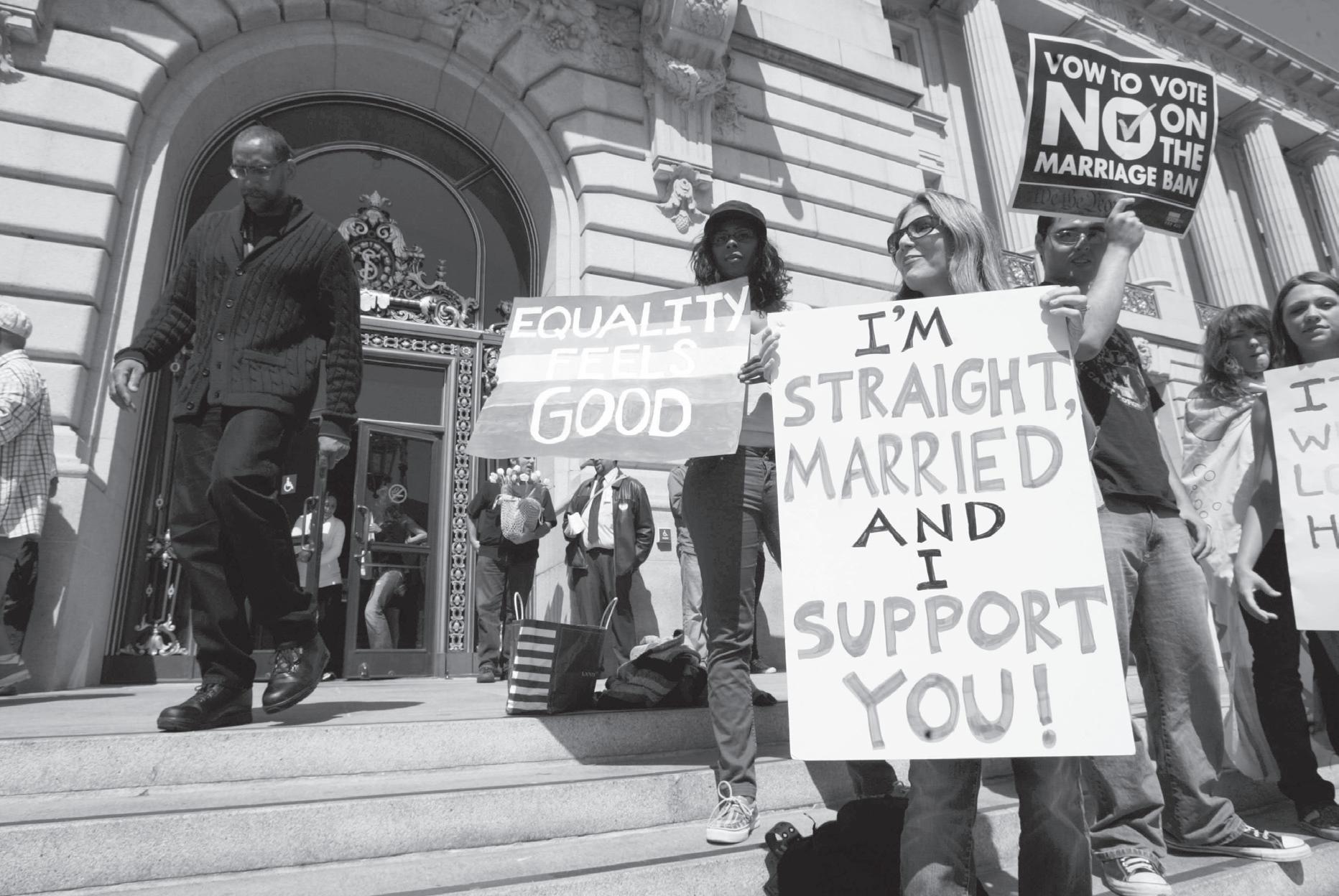
imposes a particular, anti-human agenda, and its devotees spray anyone who resists.
Christians, and others, are supposed to be shamed into silence or – when the attempt to label whole swathes of people bigots, or fools fails – the “new intolerant” will try to literally shout down opposition.
Unfortunately, the former Chief Justice’s comments must be read in this context. Certainly, beyond the familiar, dated tone of his latest attack (Nicholson claimed that the Church is “completely out of touch”, a well-worn myth that sits uneasily with the massive success of the World Youth Days), the former Chief Justice’s remarks were deliberately provocative. Beyond that, his claims were self-defeating.
Surely, inasmuch as he appeared to suggest that Catholics are motivated by bigotry, ignorance, hypocrisy, cruelty and fear to support marriage and the family, and only reject “gay marriage” because the Church seduces us with childharming policies, he is getting things confused.
Who would support, let alone love a Church with such a nasty program?
What kind of person, indeed, what kind of Christian, would be motivated by cruelty and fear to visit more cruelty and fear on the vulnerable: especially children?
If Catholics are anything other than monsters (and I’d hope that we have, as a group, proved to be at least a little better than that) Nicholson’s claims about the nature of Catholic teaching and the influence it has on children are simply untenable.
Rather, there is a solid consensus that it is radical sexual, social and political ideologies (circa 1968) that have caused the most lasting harm to our society. In 2008, most citizens have conclusively rejected the movements and ideas that so influenced Nicholson’s generation, and that coloured his controversial time on the Family Court.
Inasmuch as such views underlie his attacks on the Catholic Church, they are rightly considered extreme.
There is, of course, much in Nicholson’s public record (alongside this latest attack) to demonstrate that it is, in fact, the former Chief Justice of the Family Court who is completely out of touch.
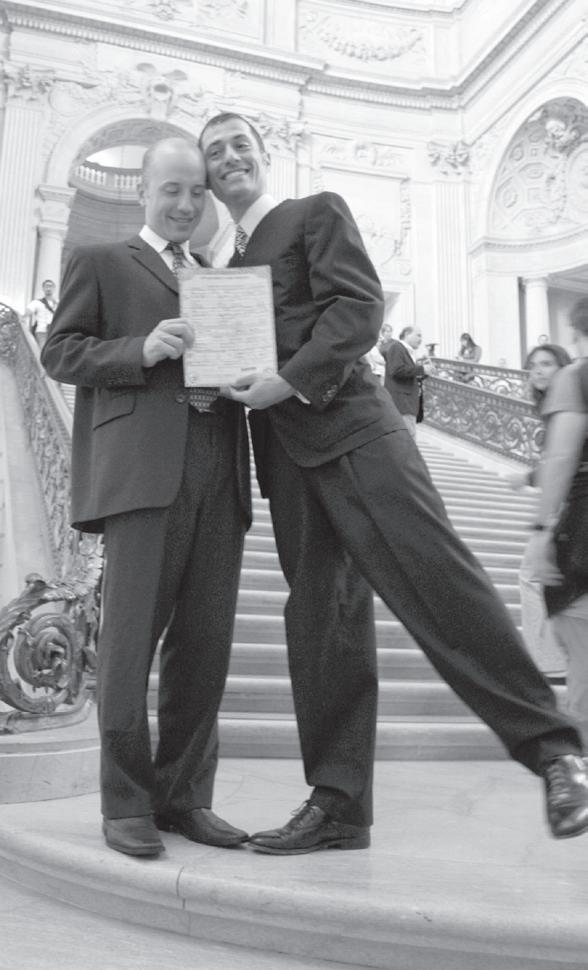
Indeed, in a 2004 decision that provoked widespread outrage, Nicholson ruled that a thirteenyear-old child could take drugs to artificially retard her sexual development.
The court-sanctioned stunting was designed to continue until the child could choose (as a legal adult) to undergo a sex change operation, and live as a mutilated “boy”.
Nicholson’s decision provoked denunciations from groups across the political spectrum. He outraged feminists (who saw a gender bias in the Family Court), the Church, and family advocates. It even earned Nicholson his first major homoactivist denunciation; from a transsexual, who regretted a sex change operation performed when he was, he claimed, too young to decide.
Certainly, while on the Family Court, Nicholson instituted and defended rules, procedures and penalties that many people now believe unfairly punished fathers. Whole gangs of these people, angry dads who believe Nicholson helped ruin their lives while his court tore apart their families, protest at the former Chief Justice’s public appearances.
Indeed, in some respects, the system Nicholson dominated, if not the ideologies he continues to espouse, could be said to have hurried the disintegration of the family.
In 2005, distinguished historian
John Hirst endorsed the conclusion that Nicholson’s Family Court was “a child abuser, a gross abuser of human rights, and…a monstrosity that is not a court of justice”. In his decisions and speeches, certainly, Nicholson never shied away from fanning the flames of a cultural tumult that most citizens would now agree has had multiple, grievous social outcomes.
In many respects, then, we are still falling off the cliff that Nicholson helped rush us towards, after a career marked by distinctly “out of touch” decisions.
The immediate challenge for the Church in Australia, assailed by the former Chief Justice of the Family Court is, then, the same challenge that Catholics face everywhere. It is the same challenge that has always faced the Christian: how to respond to the anti-Christian world?
To compete effectively in the pluralist public square, to overcome the voices arrayed against us, especially those who would call us bigots and try to shame our bishops, we must know where we are going.
Like my editor with his views on sentence structure, “the people” will indulge many things (occasional rhetorical excesses, a certain reactionary habit), but only if we can convince them that we have a coherent case to make against “gay marriage”, and other mistakes.
We must, therefore, tirelessly articulate, re-assert, and defend a view of human nature that we: (i) learn from the Catholic tradition, (ii) reason towards in our best independent thinking, and (iii) hope lives up to the very high standards set by the Scriptures.
We will always suffer for the truth, and those who rule without remedy will delight in hunting us down but, as Hans Urs von Balthasar wrote, we cannot expect any other reality, because: “Christ sent his believers into the whole world as sheep among wolves. Before making a pact with the world, it is necessary to meditate on that comparison”.
John Heard is a Melbourne writer. His blog can be found on the web at: www. johnheard.blogspot.com. Meanwhile, John Hirst’s comments on the Family Court can be found on the web as: www.abc.net.au/worldtoday/ content/2005/s1329063.htm
WHO’S MARRIAGE FOR?
Being an actor is not really the best training in the world for being a philosopher of family
Brad Pitt and Marriage: is the Hollywood star’s latest pronouncement, this time on same-sex marriage, just another example of famous rich people saying things that sound really cool at the time?
This is the final installment of a short series of columns exploring the question: What is marriage? In the first installment, we looked at the union of man and woman as the foundation stone of life and civilisation itself.
In the second, we drew from 2,000 years of Catholic teaching to formulate a definition of marriage. Here, I want to respond to some of the challenges raised by those who see same-sex “marriage” as a matter of justice and equality.
Proposition 8 is an initiative on California’s ballot that would overturn that state’s decision to legalise same sex “marriage.”
Last month, movie star Brad Pitt made headlines when he donated $100,000 to fight Proposition 8.
The statement he offered typifies the sentiments I want to respond to in this column: “Because no on has the right to deny another their life, even though they disagree with it, because everyone has the right to live the life they so desire if it doesn’t harm another and because discrimination has no place in America, my vote will be for equality and against Proposition 8.”
Who wants to deny people their rights? Who is for discrimination and inequality? It seems Pitt has everything on his side. But let’s apply some critical thinking to his statement and see where it takes us.
Admittedly, I will raise more questions than I will be able to answer in this short column. Still, I would argue that these are the questions that must be raised if we are to get to the heart of the matter.
No one has the right to deny another person his or her life, even though one might disagree with it.
I assume Pitt is referring to denying a person his or her “way of life.” Actually, courts do this all the time. In fact, that’s what courts exist to do. Courts exist to uphold and defend a “way of life” that serves the common good and to dissuade us from any “way of life” that does not.
The question at hand, then, is this: Is redefining marriage in accord with the common good? If not, the courts have an obligation to uphold the traditional definition of marriage and to dissuade us from any contrary “way of life.” Everyone has
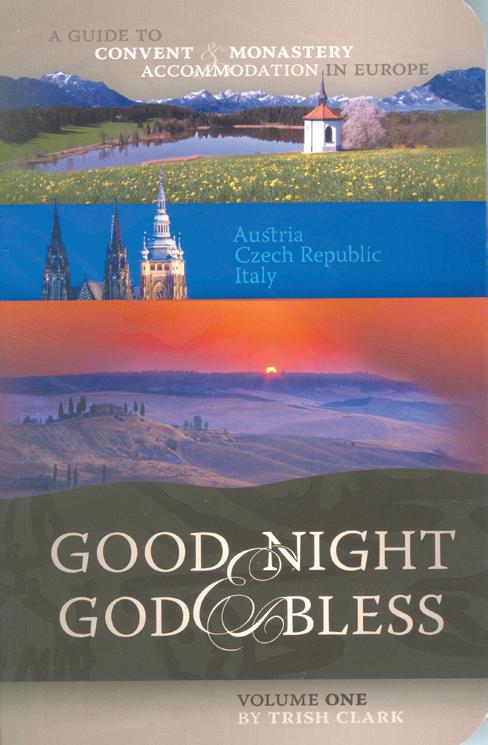


The feminine side of God

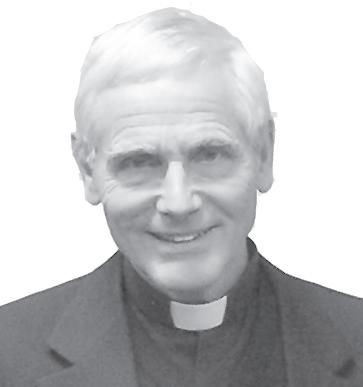 By Fr John Flader
By Fr John Flader
The Fatherhood and “Motherhood” of God
One sometimes hears God referred to as “She” or “Mother”. It makes me cringe. Is this acceptable?
TGod does this in an eminent way and for this reason too is called “Father”.
But God also exhibits maternal qualities. The Catechism says: “God’s parental tenderness can also be expressed by the image of motherhood, which emphasises God’s immanence, the intimacy between Creator and creature.” (CCC 239)
Just as a mother has a beautiful tenderness towards her children, a special intimacy with them, so does God with his children. This is revealed in numerous passages of Scripture.
In the prophecy of Isaiah God speaks to his people: “As one whom his mother comforts, so I will comfort you.”
Body Language a commentary on the intersection of faith, sex and culture
By Christopher West
Discrimination is unjust when the difference recognized has no bearing on the matter at hand. Discrimination is just – and required – when the difference matters. For example, it is unjust discrimination for the state to deny blind people the right to vote. It is just discrimination for the state to deny blind people driver’s licences (there is no universal “right” to drive a car; one must qualify).
the right to live the life he or she so desires if it doesn’t harm another. No reasonable person would agree to this statement without the disclaimer “if it doesn’t harm another.” The question then becomes: is the homosexual “way of life” harmful? Pitt simply takes for granted the widespread idea that it is not, and expects us to do the same. But the question remains: Is the homosexual way of life harmful? Courageous people need to ask this question and let the data – all the data – speak.
Discrimination has no place in America. Discrimination has become one of those buzz-words that is “indiscriminately” linked with injustice. It seems we have forgotten that there is such a thing as just discrimination. We “discriminate” – that is, we distinguish and discern by recognizing differences – all the time, and must do so.
It is unjust discrimination for the state to say a woman can’t enter the town hall. It is just discrimination for the state to say a woman can’t enter the men’s locker room at the local gym. So, is denying marriage to those of the same sex just or unjust discrimination? The question at hand is this: Does the sexual difference have any real bearing on marriage?
If it does not, any state denying marriage to those of the same sex would be drawing meaningless distinctions. But if the sexual difference is intrinsic to what marriage is, then we are dealing with just discrimination.
Finally, Brad Pitt says that his vote will be for equality and against Proposition 8. Who in his right mind is opposed to equality? But what does Mr. Pitt mean by “equality”? Does equality mean a bland sameness? Is there no place for meaningful distinctions? I’d say Brad is using the word “equality” indiscriminately.
GOOD NIGHT & GOD BLESS
Volume 1: A Guide to Convent and Monastery Accommodation in Austria, Czech Republic and Italy
By Trish ClarkGood Night & God
Bless takes you on a tour of religious hideaways offering tourist and pilgrimage accommodation throughout Europe. It reveals these unique, atmospheric and affordable places which accommodate tourists or those pursuing a pilgrimage or spiritual retreat.
o begin with, as eternal pure spirit, God is of course neither male nor female in the human sense. He is simply God, above all human categories of gender.
At the same time, in creating humans male and female in his image and likeness (cf. Gen 1:26), God seems to suggest that in some way maleness and femaleness together reflect the fullness of his divinity. Indeed, God reveals himself as having both fatherly and motherly qualities.
The Catechism of the Catholic Church deals with this sensitive issue in its section on God the Father. As regards God being “Father”, it says: “In Israel, God is called ‘Father’ inasmuch as he is Creator of the world. Even more, God is Father because of the covenant and the gift of the law to Israel, ‘his firstborn son.’ God is also called the Father of the king of Israel. Most especially he is ‘the Father of the poor,’ of the orphaned and the widowed, who are under his loving protection.” (CCC 238)
The Catechism goes on to clarify that by calling God “Father”, “the language of faith indicates two main things: that God is the first origin of everything and transcendent authority; and that he is at the same time goodness and loving care for all his children.”
(CCC 239)
That is, just as in the generation of new life the father takes the initiative and is in a sense the “first origin” of the child along with the mother, so God as creator is the first origin of everything and can rightly be called “Father”.
(Is 66:13) And again: “Can a woman forget her suckling child, that she should have no compassion on the son of her womb? Even these may forget, yet I will not forget you.” (Is 49:15)
In the book of Psalms, the psalmist speaks of being comforted by God like a child by its mother: “But I have calmed and quieted my soul, like a child quieted at its mother’s breast; like a child that is quieted is my soul.” (Ps 131:2)
And Jesus himself uses a motherly image to describe the depth of his love for the people of Jerusalem: “O Jerusalem, Jerusalem, killing the prophets and stoning those who are sent to you? How often would I have gathered your children together as a hen gathers her brood under her wings, and you would not!” (Mt 23:37)
If God is love, as St John writes (1 Jn 4:8), and we are made in his image and likeness, who is more loving than a mother? Likewise, the nurturing and sacrificing acts of mothers reflect the nature of God.
So we can say without hesitation that God, in his fullness of being, has both paternal and maternal characteristics.
Nonetheless, it is not proper to refer to God as “She” or as “Mother”. Throughout the Scriptures, God calls himself “Father”. Jesus himself teaches us to call God our Father and it would be disrespectful to refer to him in any other way.
This user-friendly travel book provides safe, affordable and comfortable
This user-friendly travel book provides safe, affordable and comfortable accommodation information, local tourist information, places of pilgrimage, travel tid-bits and anecdotes against a fascinating backdrop of history and religion. An amazing reference guide for all those planning to travel to Europe!
$29.95+postage
Available from The Record Bookshop 9227 7080
At the same time, within the family the father is the figure of authority, even though he has equal dignity with the mother. In this sense too, God, who is “transcendent authority”, can rightly be called “Father”.
And just as the father of a family shows goodness and loving care to his children,
The Catechism concludes its teaching on the fatherhood of God by saying: “We ought therefore to recall that God transcends the human distinction between the sexes. He is neither man nor woman: he is God. He also transcends human fatherhood and motherhood, although he is their origin and standard: no one is father as God is Father.” (CCC 239).
It probably comes as news to many people that the division of the world by Pope Alexander VI between Spanish and Portuguese interests is also the border separating Western Australia from the rest of the country.
A new book by well-known WA historian Prof. Leslie Marchant, who passed away several years ago, looks at that time and the decisions that made Australia what it is.
The Papal Line of Demarcation - and its Impact in the Eastern Hemisphere on the Political Division of Australia, 1479-1829
By Leslie R Marchant AM, (1924-2004)R.I.C. Publications, 234pp RRP:$25
n Reviewed by Rev Dr Russell Hardiman
When I was a foundation student at CBC Albany in 1955 the history text book we used was called Australia Since 1606. In retrospect, it seems odd that not all of this book was set as the curriculum for the 1957 Junior Certificate (Year 10) Public Exam in Australian History.
As the result of the foibles of priority given to public exams, our study started only with Chapter 3 about the voyage of Captain James Cook and the eventual plans for a Convict Colony at Botany Bay. Chapter 2 was not taught, recommended or even mentioned.
In this era of mixed memories it now seems surprising to me that we were not exposed to something as unique in history that the boundary between Western Australia and the Eastern States was established by the Pope in 1493.
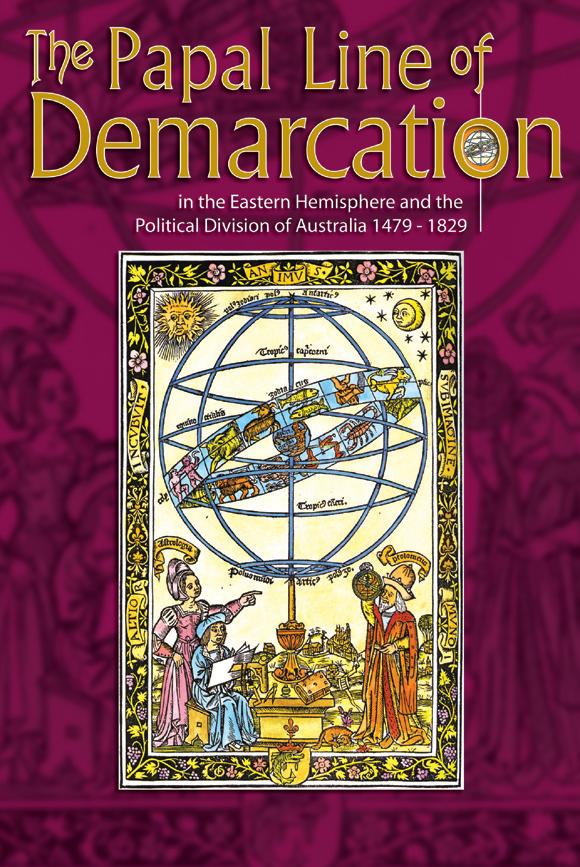
This arose because of what was called the Papal Demarcation Line, between the Western hemisphere of the Atlantic belonging to the Spanish kingdoms and the Eastern hemisphere of the Atlantic belonging to Portugal (and subsequently to the Dutch).
Fortunately other experiences brought about a change in my awareness and interest in the technicalities of the dual roles of evangelisation and exploration of the Catholic Kings of Spain and Portugal.
Alexander’s line

How it seemed: Ninety four years before Captain Cook explored Australia’s eastern coastline Father Victorio Riccio of Manila sent this large coloured map of ‘The Australian Land: The Fifth Part of the World’, dated 1676 to the Evangelisation Congregation in Rome. The Latin text in the lower left hand corner says: “From these islands it is not difficult to enter the Australian Lands.” This map does not come form the new book by Professor Leslie Marchant but it shows something of how European minds of the era looked south towards the vast unknown continent called Australia.
In London at Christmas 1965 and again in June 1976 I was introduced to reading about the Spanish exploration of the legendary Southland by studying the major work of Celsus Kelly Ofm whose works and studies are cited by our Marchant (p222).
A further awareness of the goals of exploration of the Spanish arose after 1978 when visiting the areas of Colorado and New Mexico as a member of a six-man Group Study Exchange Team sponsored by the Rotary Foundation.
The passage of the Spaniards through New Mexico to Colorado came at the exact same time as Pedro de Quiros was exploring the Pacific in search of the Southland but reached only Vanuatu.
Quiros called his discovery La Austrialia del Espiritu Santo, which has been given some publicity of recent months when Pope Benedict confused media commentators by using the title “great southern land of the Holy Spirit”.
Oddly, this voyage is more known for the response of Torres in following orders to find his way to Manilla in negotiating the straight between Australia and New Guinea which is now named after him.
That spark from the Spanish interest in America began my personal studies in history at Murdoch University.
This personal perspective in recounting some weaknesses in the system of the historic material subject to the public exams shows how it was then turned around.
This came by the energy arising from the directed reading and the gradual development of a critical mass of necessary contextual knowledge, building up so one can now approach the perspectives of new research and the limitations of what passes for political correctness in so much of history research and teaching today.
One of my favourite expressions is “an ounce of energy is worth a ton of mandate”.
This energy came through the exposure to new insights and especially the personal discussions
with Leslie Marchant for setting up an institute for the Southland at the University of Notre Dame in Fremantle.
The generous gift of his time, talents, and treasures through his community extension courses at NDA and to the passengers on the tourist ocean liners was a parallel formation from his research and publications because of his uniqueness in researching the “slavery” files in Paris that subsequently led to his major achievement in his two editions of France Australe
When he spoke about working together on a full contextual backdrop to a study of the Papal Demarcation Line, I confess to having scarcely any idea of the full realm he has so deeply penetrated to pull together the many issues he covers in this impressive book.
It is frequently claimed that no one should judge a book by its cover.
In this instance it may be very fruitful to look closely at the front cover as well as the back cover. They are almost identical in the colour and word configuration.
The front cover also includes an attempt by Ptolemy, the Egyptian geographer and astronomer of the second Century AD who had divided the world into 360 degrees and projected the curved form of the Earth on a flat surface.
The very image itself gently draws attention to the difficulty of projecting the sphere of the Earth onto a flat space, yet the markings of the global image have both horizontal and vertical lines.
That contra projections of both vertical and horizontal lines underscores the essence of the uniqueness of Leslie Marchant’s studies.
The Notre Dame Library proudly displays a copy of a map of Ptolemy donated by the Vatican Library to the University at its inception.
Marchant’s major premise concerning the Papal Line of Demarcation is discussed in Chapter Five.
The Alcaç ovas Treaty solved conflicts between Spain and Portugal by dividing their spheres
one of several in the family who sponsored his family members to be internationally significant operators for the good of the family.
Drawing the threads together about the international struggles between Catholic kings who found it hard to differentiate between their interest in cross or gold, their missionary endeavour or their economic development.
Between 1443 and 1514 ten Papal Bulls, a certain type of legal document which bore the seal of the Pope, were issued. Amongst this cluster of Papal Bulls are the ones that Alexander VI introduced into the international disputes and gave rise to the phenomenon of the Papal Line of Demarcation.
In spite of what history was taught at school, most people can quote 1492 as the year in which Columbus “discovered” America, even if the name is associated with an Italian explorer by the name of Amerigo Vespucci.
Ironically, 1492 was associated with other notable events such as the invention of printing which was to change the patterns of the world more substantially than perhaps any other invention until then.
A further milestone of 1492 was the election of Cardinal Rodrigo Borgia who took the name of Alexander VI. Falling within his reign from 1492 was the very popular campaign by Savonarola who led his own form of reformation before being burnt at the stake in 1498.
EN
of influence in a horizontal direction.
Under this arrangement Portugal gained rights to Morocco and exclusive right to all of the lands and the seas and the trade south of the Canary Islands.
Spain’s share included those Canary Islands and that line became the separation of the two hemispheres roughly at the 27 degrees North latitude.
Marchant emphasises the significance of this horizontal line of the Alcaçovas Treaty as it predates the later vertical Lines of Demarcation by Alexander VI in 1493 and the next adaptation in 1494.
This arrangement became International Law by the 1494 Treaty of Tordesillas. He subtly insinuates that most historians only refer to the 1494 Papal Line (see map p59).
If such powerful material is offered on the cover, one can validly assume that the author’s depth of scholarship flows through in many, many areas and subjects. His book is divided into seventeen chapters. In the Contents every Chapter includes the paragraphed headlines in which he differentiates one line of argument from another.
That makes for an assisted reading by visually breaking the material into digestible paragraphs which rarely go over a double page spread without the help of a phrase that shapes interpretation and sensitises one to the coming content.
The first five quasi chapters provide the background for the key subject issues such as the origins and foundations of the Renaissance of the thirteenth and fouteenth centuries, with its gradual expansion to the major European countries including the Roman Pontiffs in the chair of the Pope.
The Papal interests in promoting art and culture went hand in hand with their perceived interests in missionising and evangelisation.
The Renaissance Popes, especially Alexander VI, were rarely respectable models in their office and that particularly applies to Alexander VI, the Borgia Pope,
The title of the book is naturally the heart of the major chapters in the centre of his detailed study. The chapters are dedicated to the major decisions of the Pope, or a treaty between sovereign kingdoms, and eventually to the eras of the Reformation and the Counter Reformation.
The progression of Marchant’s material is to move beyond the single focus of the differences between Portugal and Spain but gradually expanding the interaction to cover other players on the world scene including France, Holland, and the emergence of the British Empire.
The particular focus of Marchant’s published works about French interests comes through in Chapter Thirteen, where he delineates changing spheres of influence which led to a lack of the French settling in Australia.
In the meanwhile, the British were able to acquire a Continent in Asia and eventually to establish a strategic naval settlement and convict colony on another Continent now called Australia.
He details with a clever map on page 169 the ascendency of the confidence of the British naval authorities which empowered them continually to change the border of Captain Cook’s claim on the land called New South Wales.
The first boundary of Captain Cook was calculated at longitude 142º 25’ East of Greenwich. At the time of the landing of the first fleet, Captain Philip extended the boundary to the 135º East.
After the defeat of Napoleon, the British considered themselves strong enough to move in on the Dutch claims for New Holland by lifting the border to 129º East of Greenwich.
This is the counter line to the 51º West which was the revised Papal Line of Demarcation agreed between Spain and Portugal. It is still the boundary between Western Australia and the Eastern States of Australia.
The multitude of detailed studies from various fields of history, diplomacy, religious traditions, and the economic expansion from Europe to the Western and Eastern
Continued - next page
Experts all nominate family as Number 1
Australian family advocacy organisation and lobby holds national conference in Perth
n By Anthony BarichThe institution of marriage, and subsequently civilisation, can only be saved by conversion of hearts and minds.
This was the assessment of John Paul II Institute of Marriage and Family lecturer Rev Dr Adam Cooper when he addressed the Australian Family Association national conference at the Tradewinds Hotel in Fremantle on October 18.
Prof Lynn Wardle, Professor of Law from Brigham Young University, Utah, also told the conference that the push for samesex marriage, which threatens the institution of marriage, also restricts moral belief and freedom of religion and of speech.
Over 200 people from around Australia and overseas attended the conference to hear three keynote speakers, including Allan Carlson, author, researcher and founder of the World Congress of Families, the AFA’s global partner.
In his address titled ‘Sex and Society’, Rev Dr Cooper, a Lutheran minister in Geelong, said the present push for gay marriage is “but a symptom” of a longer-

standing social illness born of the ‘totalitarian contraceptive culture’ that turns its subjects into slaves.
He said that as the natural bond between sex and fruitfulness was severed long ago, contracepted sex is essentially ‘sterile sex’, and is therefore closely linked to homosexual sex as the spiritually unitive and procreative meanings of marriage have been largely dismissed.
Contracepted and homosexual sex, he said, are so closely corre-
lated that “once you grant to heterosexual couples the justification to engage in intentionally sterile sex, you leave yourself no rationale by which to deny to homosexual couples the rights and privileges of heterosexuals”.
Therefore, he said, coercion through mandating lifestyle changes by law would be “very destructive”, as “the custom of sterile sex has acquired the virtual force of law, shaping the minds and
mores of generations of people”. “You can’t mandate a moral revolution by legal imposition. There are legal and political battles to be fought, but… the struggle needs to take place instead at the level of the mind and the heart,” Rev Dr Cooper said.
He said the task is to cultivate a new, pro-life culture shaped from the ground up, “starting with ourselves and our own self-education”. This would include schooling in:
l the economic and social sciences, whose statistical data increasingly point to the functional benefits of heterosexual marriage,
l the natural and biological sciences, whose findings increasingly suggest that heterosexual monogamy, not sterile paneroticism, is one of the basic keys to man’s “unique evolutionary primacy”.
He said this education must be rooted in the “personal and moral complexity” of the sexes and the fundamental human yearning for a personal relationship marked by the exclusivity, reciprocity and permanence that Catholic marriage vows demand. Prof Wardle said that children in public schools are taught not true tolerance but that difference forms of relationships are the same and all should be equal by law – “a demonstrably false assumption”.
She said equality claims by gay marriage advocates are false advertising, as marriage is more than a piece of paper; and that calling the union of two men or two women
AFA urges pro-family housing measures
The Australian Family Association has called upon State and federal governments to develop family-friendly policies for the provision and ownership of housing in the current uncertain economic climate.
The AFA adopted 10 new policiecs to be espoused nation-wide at its national conference at the Tradewinds Hotel in Fremantle on October 18, with the 11 motions involving housing among the most popular.
Suggestions for family-friendly gorvernment policy included:
l co-ownership/shared equity between government and home buyer,
l Land Corp or equivalent providing land at cost to bone fide home owner/occupiers,
l Super funds partially available as eligible savings for home buyers,
Continued from Page 10
l Review of Residential Tenancies Act to encourage supply of private rental stock,
l Review and minimise government taxes and charges,
l Strongly encourage domestic savings,
l Support the retention of negative gearing,
l Encourage industry innovation to support realistic aspirations for home buyers,
l That government apply consistent policies that promote a long-term view of home ownership,
l Support government initiatives that promote energy-efficient housing to reduce costs,
l That government support the provision of infrastructure, following decentralist policies, in urban development.
The conference also called on
Indies are brought together in impressive scholarship that is the style of Leslie Marchant. What comes across frequently is his capacity to link up the background and contextual issues that still flow together until today.
An example would be the emergence of a European Islamic State (Turkey) that had replaced the previous older Byzantine Empire as it saw the demise of the former Eastern arm of the remaining Western Roman Empire.
Such a quandary is cleverly nuanced by an insightful image for contemporary readers to interpret the light engendered by his metaphor noting how the onion top towers of the Muslims give way to the Christian built church spires and towers.
In John C Rice’s Foreword the attractions for Australians and especially Western Australians who may have been affected by some of the weaknesses in the teaching of history over the generations are summarised. Well may that be a topic of public debate at this very time:
“Leslie Marchant’s lifelong belief in the importance of empirical research without ideological preconceptions, his breadth and depth of thought and his ability to perceive historical events within a global context and perspective make this book compelling reading not only for Australians interested in the border between Western Australia and the Eastern States but for all who wish to gain an insight into the landmark events that have shaped our history.
“This book is short, but it is dense with information which reveals a mind which ranged widely over both history and literature. Regrettably, it is the last contribution from Leslie R Marchant.”
Last? Yes, but not the least.
all members to meet their State and federal politicians to introduce and promote marriage by discussing the 2007 Marriage Manifesto document and its importance.
The Marriage Manifesto is a 36-page document produced by the National Marriage Coalition to educate and encourage politicians to promote and defend marriage and thereby stop civilisation declining any further. It includes “21 reasons why marriage matters”, which was part of the campaign to push for the Federal Marriage Act 2004.
The over 1000 people who showed up at barely three weeks notice at the Great Hall in Canberra’s Parliament House to support such legislation prompted the federal Labor Party to back it.
The National Marriage Coalition is a large alliance of community and faith-based groups.
The AFA also handed out awards on October 19 to representatives of couples who have been married for 50 years or more, including the

and David Perrin. The AFA’s national conference helped the organisation, a leading pro-family lobby, focus its efforts for the coming 12 months.
mother and father of the extended Neesham family and to the AFA’s deceased national patron’s widow Betty Beazley.
- Anthony Barich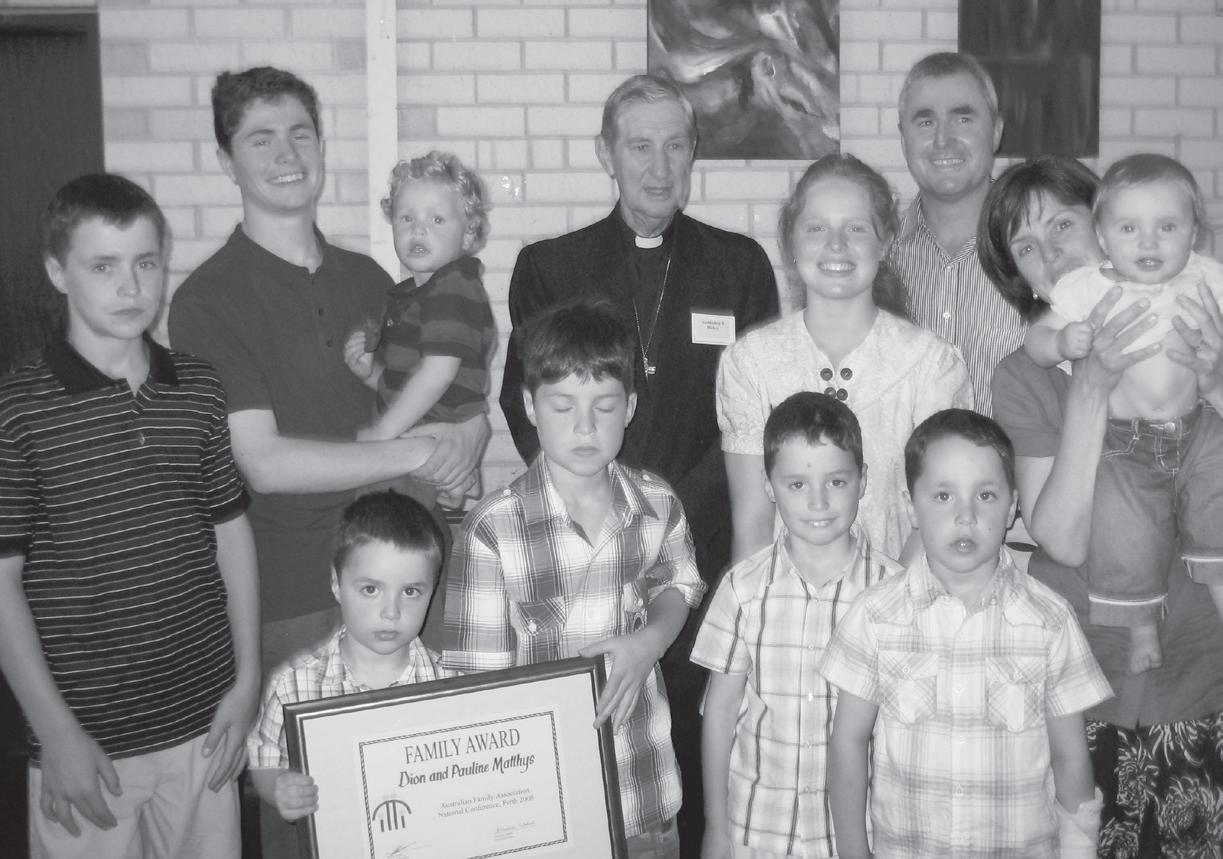
a marriage does not make it one, even by law. She said that marriage has a crucial role in creating social capital and building social infrastructure, noting that the decline in family integrity (increase in outof-wedlock children and in family break-ups) is accompanied by and associated with the decline in civic participation and community life.
Marriage’s capacity to promote the health, wealth and well-being of adults and communities is due to its nature not label, she said.
Same-sex marriage is legal in six nations and in two States in the US, while same-sex unions equivalent to marriage have been created in 13 nations and six US States.
The morality and behavioural expectations of gays and lesbians also differ markedly from married men and women, she said, quoting Dutch AIDs researchers, who reported in the journal AIDS that gay men with steady partners engage in more risky sexual behaviours than gays without steady partners.
They also found that the average duration of committed relationships among gay steady partners was 1.5 years, while US researchers Bell and Weinberg reported that 43 per cent of white male homosexuals had sex with 500 or more partners.
She concluded by calling on all people of good will to “stand up for conjugal marriage and work diligently to protect marital families”.
Awards for witness to marriage

Winners: of the AFA’s Family Award for 50 years marriage were Arthur and Anne Olsen, parents to 16 children and pictured here with Archbishop Hickey.
The Australian Family Association awarded special family awards on October 19 to couples married 50 years: Mrs B Beazley
Mrs J Bowen
Dr & Mrs FG Smith
Mr & Mrs Studham
Dr & Mrs L McGrath
Mr & Mrs T D’Orsogna
Mr & Mrs E Neesham
Mr & Mrs R Bennison
Mr & Mrs C Eaton
Mr & Mrs D Carr
Mr & Mrs L Englefield
Mrs E Perrot
Mr Sandhu Bikram Singh
Mr & Mrs JG Fleeton
Mr & Mrs RJ Scallan
Mr & Mrs A Olsen
Mr & Mrs G Mazak
Mr & Mrs N Voysey
Mr & Mrs J Dallimore
Mr & Mrs B Peachey
Mr & Mrs J Grant
Mr & Mrs K Hogan
Exceptional effort Family Awards were also presented to:
Fr & Mrs F Lindsey
Mr & Mrs D Matthys
Mr & Mrs P Haydon
Mr & Mrs H Miller
At heart of tale of decadence, great hope
 with Catherine Parish
with Catherine Parish
There is a new film of evelyn Waugh’s novel Brideshead Revisited to be released very soon. From the tone of a recent article in The Australian it seemed that we might be in for a revisionist version, unless journalist Jane Cornwell and her interviewee emma Thompson have missed or misunderstood one or two important things in the book.
For a start, though called so twice in the article, Charles ryder, the narrator, is never an atheist; he is an agnostic, and a puzzled observer of the aristocratic english Flyte family’s curious religious sensibilities, rather than an active enemy.
even at the most poignant moment of recognising that he has lost Julia Flyte he still does not reject faith; on the contrary it is the moment he begins to understand just what it is that has caused her to end their relationship.
My thoughts on this were crystallised by another article in The Record (October 15 2008, ‘Cardinal rode calls religious to account’).
In it the Cardinal says about those changes caused in the Church by false updating that “supposed the radical centring of man on himself and the rejection of the supernatural, and operated in a climate of radical subjectivism (manifested by) talk about holiness that is totally divorced from the fulfilment of Christ’s law and the concept of grace. In minimising sin… In taking the world as the criterion according to which the Church ought to be reformed… In rejection of authority, and especially divinely constituted authority, hence the rejection of the magisterium…”
I had to quote so extensively, because the Cardinal has encapsulated much that Waugh is saying in Brideshead Revisited. All the characters come up against one or other or all of the difficulties with their Catholic faith that the Cardinal mentions.
Dont’t go
BrIdeSheAd revisited is the most dishonest film I have seen for a long time. The panning it has received by other critics despite its pretty scenery gives me hope for the state of our culture.
I will declare my own religious position first: I am not a Catholic and regard myself as a non-denominational Christian. having said that, let me turn to the overarching fault of the film: it traduces the intentions of author evelyn Waugh.
Waugh believed faith, specifically Catholicism, apart from offering eternal Salvation, was the only solution, admittedly sometimes a hard and difficult one, to the agonies of being human in a Fallen world. In the film, however, Catholicism and faith in the wider sense are portrayed not as the solution but the problem.
A major theme of the book is that, by the workings of divine Grace, Salvation is offered to all, including in this case even such improbable subjects as the unlovely idle rich family of Marchmain and the cynical, unbelieving, fashionably-fraudulent artist Charles ryder who narrates the story. There is almost nothing of this in the film.
While the deathbed return to faith of Lord Marchmain is the obvious climax of the book, the second, and in its way more moving, culmination is the revelation on the last pages that ryder, as a hard-bitten, middle-aged army Captain in the grey, desolate world of 1944, now also kneels and prays in the chapel where the altar-lamp is “burning anew among the old stones.”
In the film there is no hint of ryder’s final

Through the workings of grace, Sebastian, Lord Marchmain, Julia, and Charles all finally recognise the truth of a prior claim of something greater than oneself and one’s wishes, despite their kicking against it until the last possible moment.
But it is not all grace.
There must be a genuine attempt at cooperating with that grace, beginning with bowing to the tenets of Christ’s Church.
Waugh adroitly shows the reality of the very real, human and often painful ramifications of that recognition in the agonising parting of Julia and Charles. It takes but a moment; but what an excruciating moment.
Charles ryder narrates in retrospect, having become a committed Catholic. One of the most moving themes in the book is that of the unexpectedness of God’s grace, and the infinite patience of God, waiting until the moment of death for the voluntary submission to grace of that stiff-necked old reprobate Lord Marchmain.
Ironically and not without mordant
humour, not only has Lord Marchmain submitted, but by his very submission Marchmain has convinced Julia and touched Charles with the beginnings of faith.
The ambivalent representation of Lady Marchmain, as a gentle woman of simple faith whose deep convictions lead her to alienate her wayward husband and children by trying to gently but implacably bully them into her way of being a Catholic has always fascinated me.
As a parent one cannot help sympathising with her, as we all want our children’s souls to be saved and would give our lives to do so. It is difficult to know when teaching ends and imposing begins.
It always seemed to me that what Waugh was trying to convey was that while the spadework of catechesis is vital, there must always be room for the intensely personal nature of Christ’s call to each person, and the correspondingly personal nature of each person’s response to that call.
In short, that faith is a gift, it cannot be

conversion, except that, when he enters the chapel where a candle is burning, he refrains, apparently on second thoughts, from pinching it out, perhaps for no more spiritual reason than because he doesn’t want to burn his fingers. Big deal! one might say. he then fades away without a word, unlike the book in which the sadness of the preceding story is set aside by the final consoling soliloquy and affirmation of Faith.
ryder’s introductions to the practical worldly goodness of Catholicism – the monk at the Moroccan hospital and the work done by Cordelia for refugees – do not feature.
All this adds up to a radical distortion of the author’s intentions: the work of one of the greatest Catholic novelists of the 20th Century has been turned into something very close to being an anti-Catholic tract.
Both Catholics and non-Catholics have some good lines in the book and the 1981 TV adaptation, but none in the film: instead of eloquent dialogue there is waffle and pseudo-mysticism. “Guilt” is evoked as a major theme, which again is not exactly the case in the book. The script-writers seem compelled to try to improve on evelyn Waugh’s lines, a bad as well as an impudent idea.
In the fine TV adaptation, which followed the book faithfully, Claire Bloom was a charming, subtle monster as the controlling, possessive Lady Marchmain. In the film,
reflecting its general artistic crudity, emma Thompson, looking well past her use-by date as a charmer and with a gruesome parody of an upper-class accent, is a crude monster, and her control-freakery is seen as emanating entirely from Catholicism.
her son Sebastian is shown as driven to alcoholism by religious guilt implanted by his mother and by thwarted homosexual love for Charles ryder after Charles shows he prefers Sebastian’s sister Julia.
Neither of these themes is to be found in the book. In that Sebastian’s problem was that after his Arcadian childhood, he was unable to face being adult, maimed by having no dignity or will-power, a quite different matter.
Unlike the TV series, he comes across as rodent-like rather than tragic, and there is nothing to suggest why Charles should have liked him anyway. Whether there was a sexual relationship between Charles and Sebastian at all is not spelt out in the book.
The catalyst of Sebastian’s final worldly ruin in the book, the death of the German Kurt in a concentration camp, is not mentioned at all, and his final apparently incongruous finding of salvation and peace as a humble porter is glossed over in a line.
Further, it is reported that he is a porter, not, as in the book, in a monastery, but in a hospital. In the book, Sebastian’s life in the monastery and the kindness of the monks
forced upon people, and that there are as many ways of loving God as there are human hearts. You can try to force outward conformity to the teachings, but until the commitment is internalised and personalised, faith does not grow – it may even become a source of resentment and hatred; hence the torn and troubled characters of Sebastian and Julia, and Lord Marchmain.
It is Lord Marchmain’s own personal, voluntary response to grace on his deathbed with a simple Sign of the Cross that saves him.
Similarly, it is Julia’s realisation that she herself must decide for or against a life of sin with Charles that triggers her own personal response to Christ in her decision not to continue in it.
And finally, Charles ryder’s selfless prayers at Lord Marchmain’s deathbed, first qualified by doubt in God’s existence, and then completely unqualified, are answered in the most striking and uncompromising way by Lord Marchmain’s action.
he too must respond honestly to this shattering manifestation of the fact that God listens to our prayers.
And poor Sebastian, in his little cell attached to a monastery, interspersing saintly devotion with the odd alcoholic jaunt, humbly dealing the best way he can with the tension between his own weakness and the demands of a faith he has discovered he cannot run away from. he also has to make his own response to Christ’s call.
Charles is not ‘unceremoniously spat out’, as Jane Cornwell claims, either. I think one of the triumphant aspects of the story is the absolute reluctance with which Julia gives up Charles, and the obvious heartbreak she knows she is going to endure. She recognises that to ignore the sinful nature of that relationship would ultimately destroy them both.
Charles recognises at least in retrospect that though he lost much, he gained something of infinitely greater value from his involvement with the Marchmains.
There is pain, but there is still also love, and gratitude, in his memories. Perhaps his attachment to the family is perpetuated in his embracing their Catholic faith, and who is to say it is not a stronger bond than any other?
in taking him in, when there is literally no refuge in the world for him, is described in detail – the Abbott, a “grim old dutchman” from an African mission, recognises holiness in him. The different word is significant in the context, and the only reason the word was changed can have been to denigrate the idea of the church in general.
Anthony Blanche, an important character, is seen only in a couple of brief and virtually pointless scenes. Perhaps because of the advances political correctness has made since 1981, he is hardly the cynical, outrageously kamp, witty and perceptive commentator on the follies of the others which made him a star of the TV series, nor is he shown in his last decline when the inadequacies of his wit, cynicism and perception are shown in a pitiless light.
ryder’s character is also distorted. he is not intended in the book to be a ruthless social-climber overcome by the glamour and wealth of the upper class. he is seduced by a more subtle numen. his father has a large London house with servants, he is perfectly schooled in correct behaviour and dress when moving in high circles.
Unlike, say, Patrick dennis’s Tony, he would never commit a faux pas at a houseparty, or try too hard to impress, and though not in the Marchmains’ league of wealth is one of the upper middle-class at least.
There is no trace of the theme which occurs not only in Brideshead but in probably all Waugh’s major novels: that as a result of the reformation the english upper classes, divorced from an authentic fons, gradually over the centuries lost their purpose (with the degenerate aristocracy of the Bollinger Club in Decline and Fall, and the noblemen of ancient and sonorous title working as gossip-columnists in Vile Bodies).
It was probably impossible to compress as long, complex and subtle a book as Brideshead Revisited into a single film. A better course of action would have been not to have tried. Go back to the book or the TV series.
COOKING Kids bitz colouring/activities
St Blaise

St Blaise is believed to have been a physician who became the bishop of Sebaste in Armenia early in the fourth century. Even after Emperor Constantine had given peace to the Christians in the West, his colleague Licinius still persecuted the Christians in the East. Blaise, as a Church leader, was accused of being a Christian, tried in court and found guilty. According to legend, he was tortured with iron combs and put to death at Sebaste at around 316. He is the patron saint of throats, because he once cured a boy choking on a fish bone.
BUBENSCHENKEL BOY THIGHS
Ingredients:
1 Tbsp. dry yeast warm water to dissolve the yeast 1 c. (250ml) milk, scalded and cooled 1 Tbsp. butter, melted ½ tsp. salt pinch of sugar 3 eggs
6 c. (750g) flour oil for deep frying
Method:
Dissolve the yeast in a few tablespoons of warm water. Then blend all ingredients into smooth yeast dough. Set aside, let rise for about 1 hour until doubled in size. Roll out dough to about ½ inch (1cm). Cut with a pastry wheel into 2 x 4 – inch rectangles (5 x 10 cm). Make a cut in the middle of the rectangle almost to the middle. The pieces will look like Bermuda shorts.
Let dough rise another 15 minutes. Fry in hot oil until golden. Serve with a Germanstyle potato salad and a green salad. This dish contains no meat, but it may be served with a meat dish that has lots of gravy, such as a goulash or turkey a la king.
Makes about 18 pieces
*This is an old Swabian recipe to be cooked on the feast day of St Blaise. There was a pre-Christian, pagan festival on the same day as St Blaise’s feast day, and it is believed that this recipe has its origins in that festival. The dish was later associated with St. Blaise. It is interesting to note that the Pennsylvania Dutch have a similarly named dish called “Boovashenkel”, which is translated in the same way. However, the recipe for this dish is quite different as it contains meat. It is essentially boiled beef with potato dumplings. Whether there is a connection between this recipe and St. Blaise is not known.

Daniel was not afraid. He just knelt down and prayed to God to keep him safe. God knew that daniel had done nothing wrong, so he sent an angel to close the lions’ mouths
 By Ernst
By Ernst

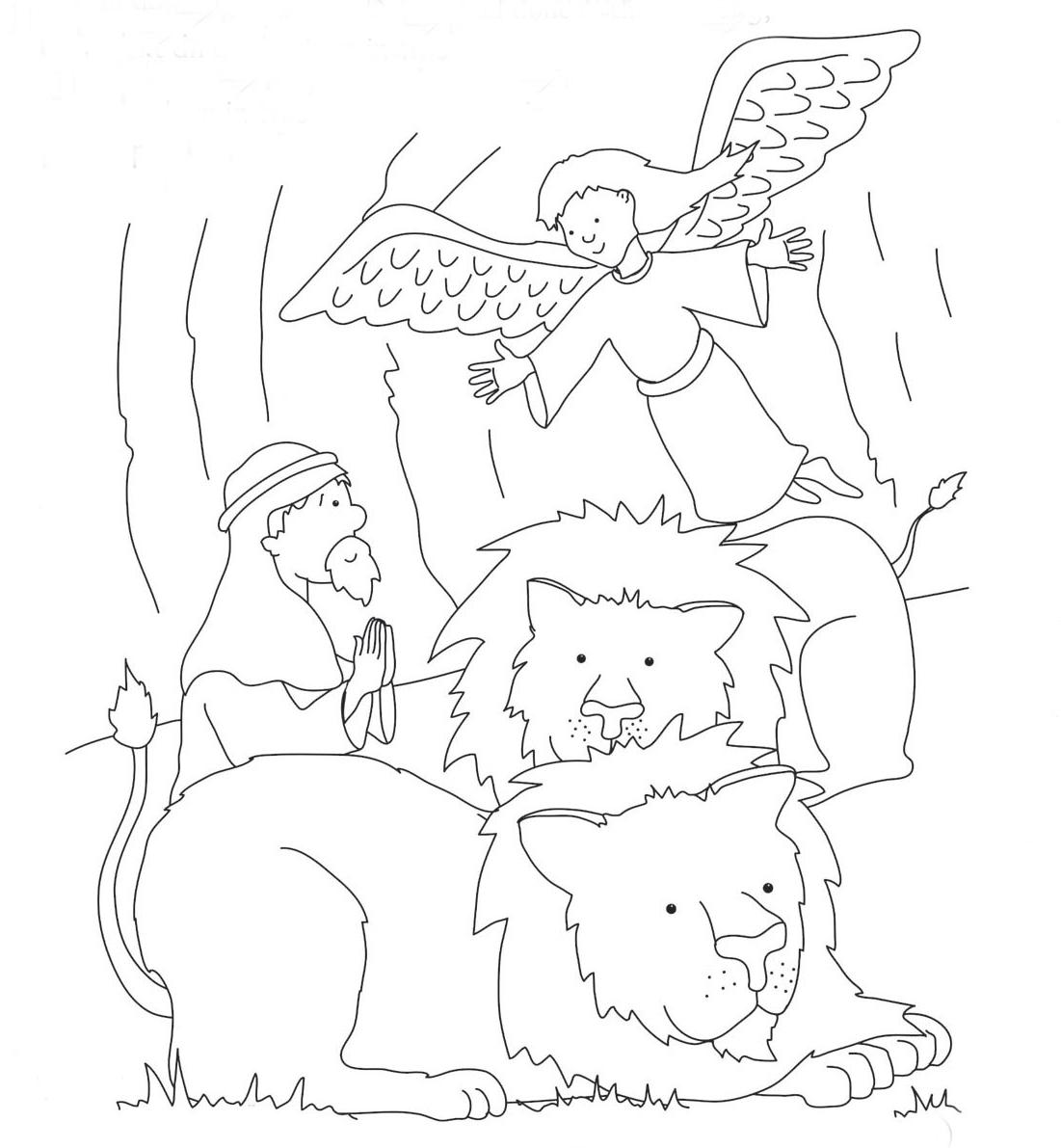
jokes
Q: Why didn’t the chicken cross the road?
A: Because there was a KFC on the other side!
Q: Why did the chicken cross the road?
A: To show everyone he wasn’t chicken!
Q: Why did the lion spit out the clown?
A: Because he tasted funny!
Q: Why did the turkey cross the road?
A: To prove he wasn’t chicken!

Thankyou, Joseph, for your wonderful picture of cars
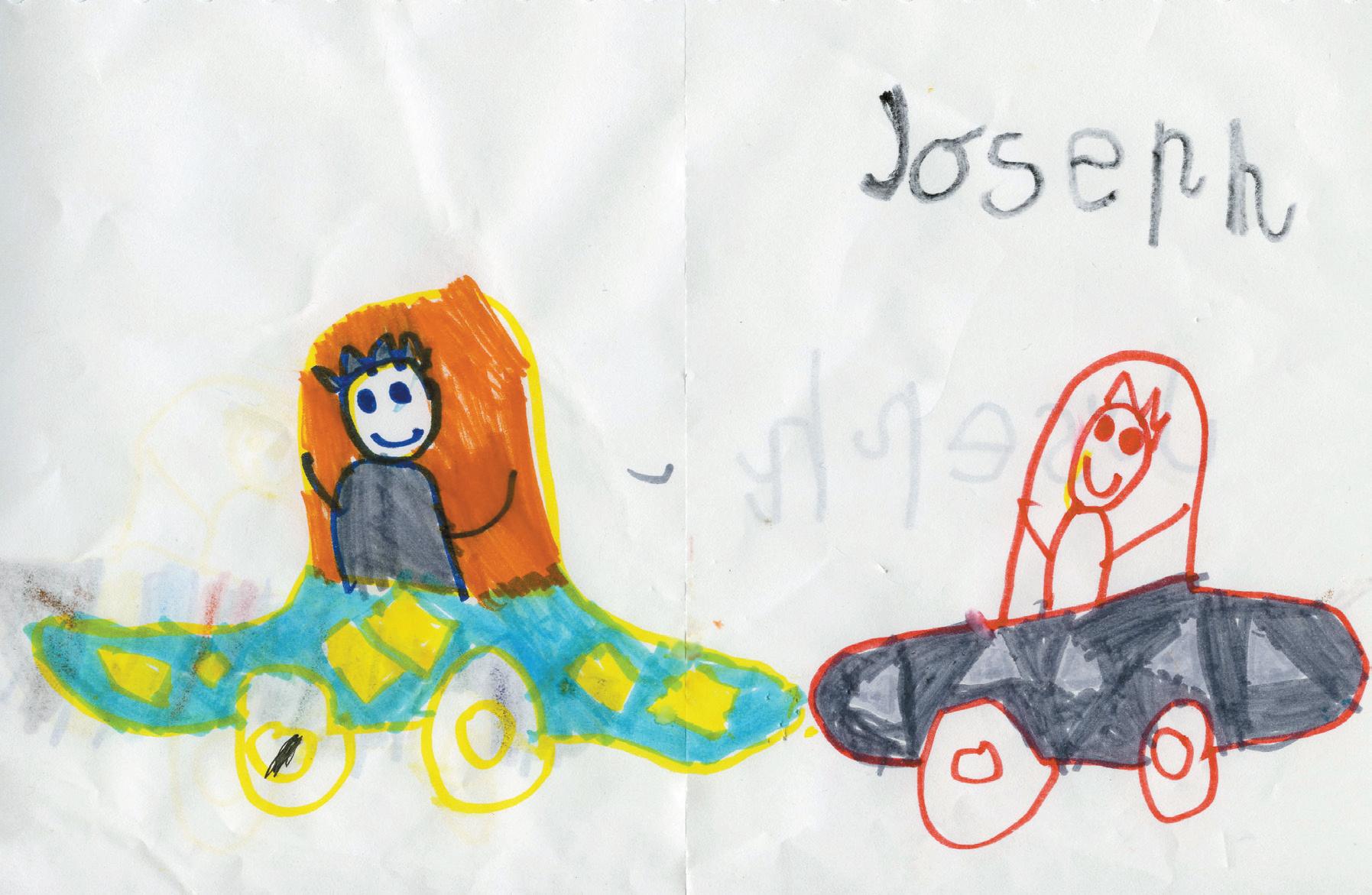
CARRY ALONG BIBLE FUN

Q: What do you call a dinosaur with no eyes?
A: Doyouthinkysaraus
Q: What animals are on legal documents?
A: Seals!
Q: What do you get when you cross a snake and a pie?
A: A pie-thon!
Q: What is ‘out of bounds’?
A: An exhausted kangaroo!
Q: What did the buffalo say to his son when he went away on a trip?
A: Bison!
Q: Why didn’t the boy believe the tiger?
A: He thought it was a lion!
Q: What do you call a sleeping dinosaur?
A: A dino-snore!
Q: How do bees get to school?
A: By school buzz!
Q: What do you give a sick bird?
A: Tweetment!






Q: What is black and white and black and white and black and white…..?
A: A penguin falling down the stairs!
Q: When does a teacher carry birdseed?
A: When there is a parrot-teacher conference!
Q: What is a polygon?
A: A dead parrot!
Q: What kind of bird works at a construction site?
A: The crane!
A roundup of events in the Archdiocese
Panorama entries must be in by 12pm Monday.
Contributions may be emailed to administration@therecord.com.au, faxed to 9227 7087, or mailed to PO Box 75, Leederville, WA 6902.
Submissions over 55 words will be edited. Inclusion is limited to 4 weeks. Events charging over $10 will be a put into classifieds and charged accordingly. The Record reserves the right to decline or modify any advertisment.
Sunday November 2
DIVINE MERCY
AFTERNOON WITH JESUS AND MARY
1.30pm at St Joachim’s Church, Shepparton Road, Victoria Park, Holy Rosary, Reconciliation and Sermon by Fr Anthony Van Dyke OP, on All Saints and Holy Souls, followed by Divine Mercy prayers and Benediction. Refreshments, followed by Video/DVD on Body and Blood of Jesus, with Fr John Corapi. Enq: John 9457 7771 or Linda 9275 6608.
Sunday November 2
FUNDRAISING CONCERT FOR THE LITTLE SISTERS OF THE POOR
2pm at Little Sisters Community Hall, Rawlins Street, Glendalough, in the presence of Bishop Don Sproxton, come and enjoy your favourite sounds of music, afternoon tea and door prizes. Tickets are $10. All proceeds to the Little Sisters. Door sales, bookings welcome. Enq: Mary 9443 3963 or Angela 9275 2066.
aturday November 1
LATIN MASS - ALL SAINTS
5pm at Our Lady of Fatima Church, 10 Foss Street, Palmyra; Mass according to the 1962 missal will be offered. Latin Mass is offered here every Sunday at 12noon. All welcome.
Sunday November 2
SCHOENSTATT SPRING AFFAIR
9.30am to 2.30pm at 9 Talus Drive, Armadale, besides spending money, come and receive Graces free of charge by visiting the Schoenstatt Shrine. As it will be All Souls Day, take the opportunity to pray for your relatives and friends who have gone before us and those who need God’s mercy by offering up Holy Mass. Enq: 9399 2349
Sunday November 2
ALL SOUL’S DAY MEMORIAL SERVICE
2pm at Pinnaroo Valley Memorial Park Crematorium Chapel, please note, as All Soul’s Day falls on a Sunday this year, the Memorial Service will not include Mass. Everyone welcome. Enq: 9307 2776 or Leanne 9402 1582.
Monday November 3
CATHOLIC PASTORAL WORKERS ASSOCIATION
HOLY SOULS MASS
9.30 am at Catholic Pastoral Centre Chapel, 40A Mary Street, Highgate; Celebrant, Fr Paschal Kearney. Tea provided after Mass.
Monday November 3 to Friday November 7
ARMADALE PARISH MISSION
PEACE AT ANY COST
7pm at St Francis Xavier Church, Forrest Road, Hilbert, Brookdale, with presentations by Norma Woodcock each evening, concluding with a Healing Mass with The Sacrament of the Anointing on Friday evening. A week that may change your life! Enq: 9399 2143.
Friday November 7
THE ALLIANCE, TRIUMPH AND REIGN OF THE UNITED SACRED HEART OF JESUS AND THE IMMACULATE HEART OF MARY
5.15 pm at St Bernadette’s Church, Glendalough, confession; Mass 5.45 pm, followed by exposition of the Blessed Sacrament, hourly rosaries, hymns and reflections etc, throughout the night. Vigil concludes with midnight Mass in honour of the Blessed Virgin Mary. Enq: Father Doug Harris 9444 6131 or Dorothy 9342 5845.
CATHOLIC FAITH RENEWAL – PRAISE AND WORSHIP
7.30pm at St John and Paul’s Church, Pinetree Gully Road, Willetton, followed by a talk on The Church is Missionary, by Fr Saminedi, thanksgiving Mass and light refreshments after Mass. All welcome, bring family and friends. Enq: 9381 4498 or Rose 0403 300 720.
Saturday November 8
20-YEAR REUNION–LA SALLE COLLEGE CLASS OF ‘88
7.30pm at The Queens Hotel, Beaufort Street, Highgate;
Enq: Melanie Hood (Franklin) 0413675596 or Phil Miolin 0425758262 or philipmiolin@hotmail.com by 31 October.
RICHARD AND JUDY PRIESTLEY FARM GROTTO
TWENTIETH YEAR - ANNUAL HOLY MASS
10.30am Mass. Directions; take Great Eastern Highway to El Caballo Blanco, turn South into Wariin Road, go 1.8km, turn East into Chingaanning Road and go 2.2km. Allow 40 minutes from Midland. Bring chair and hat. BBQ meat provided. Enq: 9450 2749 or 0428 502 749.
Sunday November 9
COUNCIL OF CHRISTIANS AND JEWS – WA INC COMMEMORATION OF THE 70TH ANNIVERSARY OF KRISTALLNACHT
5.30pm at the Government House Ballroom, music, poetry, drama and reflection in the presence of His Excellency The Honourable Dr Ken Michael AC. Guest speaker is holocaust survivor Ken Arkwright OAM. Access 5pm to 5.25pm. RSVP 3rd November to ccjwa@aol.com or 9424 6431.
Tuesday November 11
SPIRITUALITY IN THE PSALMS
7.30pm to 8.30pm at St Benedict’s Church, 115 Ardross Street, Ardross. Dr Liz Boase, Lecturer - University of Notre Dame, will give a talk on the nature and use of the Psalms. Focus will be particularly on praying in both personal and community settings considering how these prayers join us to the whole Body of Christ. Enq: 9364 4658 or 0421 636 763.
Wednesday November 12
ENGLISH BYZANTINE (MELKITE) RITE MASS
7pm at Melkite Catholic Church of Our Lady of the Annunciation formerly All Hallows, Central Avenue, Mt Lawley. Celebrant Fr Kevin Cummins. Fellowship follows thereafter. Enq: Collin 0438 643 070.
Saturday November 15
ST PADRE PIO PRAYER GROUP
8.30am at Little Sisters of the Poor Chapel, 2 Rawlins Street, Glendalough; St Padre Pio DVD - Hall, 9.45am Blessed Sacrament Exposition, Rosary, Divine Mercy, silent adoration and Benediction. 10.45am Holy Mass, St Padre Pio liturgy. Confessions available. 11.45pm BYO lunch, tea and coffee provided. Parking at rear beside Chapel. All welcome. Enq: Des 6278 1540.
Saturday November 15
CATHOLIC CHARISMATIC RENEWAL – RENEWAL DAY
9.15am to 4pm at the Bioethics Hall, 39 Jugan Street, Glendalough, CCR members, friends and all interested, invited to a Time of Renewing for our Movement. Talks, reflections and exhortations will be both challenging and rewarding. Bring lunch to share. Tea and coffee provided. BYO Bible, notepad. Collection will be taken. Enq: Pam 9381 2516 or Dan 9398 4973.
Sunday November 16
AUCTION FOR THE POOREST OF THE POOR IN INDIA
12noon at Our Lady of the Mission Parish Hall, 70 Camberwarra Drive, Craigie, please spring clean your cupboards and garage and donate items in good condition, gifts and gadgets etc excess to your needs and help $1 turn into 2 kilos rice in India for the Ragpickers children etc. Enq: Sheila 9309 5071 or shannons3s@ optusnet.com.au
Friday November 21 to Sunday November 23
CELEBRATING CHRIST THE KING
7.30pm at the Sacred Heart Church, Pemberton, a Retreat and Healing Rally presented by the Holy Spirit of Freedom Community. 23 November, Mass, Eucharistic Procession, Benediction and blessing of the new Grotto. Children’s Ministry will be available. All welcome. Enq: Marcelle 9776 1542.
Sunday November 23
PILGRIMAGE TO BOVE FARM SHRINE - FEAST OF CHRIST THE KING
Exposition, Rosary, Divine Mercy prayers, Chaplet of
Divine Mercy and St Faustina’s Praises of Divine Mercy. Mass, Main Celebrant Fr Harris and Fr Meilak and other priests are invited. Reconciliation and blessing of the sick offered. Conclude with Divine Mercy Way of the Cross-, for those able to walk the bushland. Refreshments and barbecue provided. Enq: South Perth- John 9457 7771, North Perth- Charles 9342 0653.
Every 2nd Wednesday of Each Month
CHAPLETS OF THE DIVINE MERCY
7.30 pm at St Thomas More Catholic Church, Dean Road, Bateman, beginning 12 November, all welcome to a beautiful, prayerful, and sung devotion. Enq: George 9310 9493 home or 9325 2010 work.
Every First Friday and Saturday of Month
COMMUNION OF REPARATION – ALL NIGHT VIGIL
7pm Friday at Corpus Christi Church, Mosman Park, 47 Lochee Road, Mass with Fr Bogoni and concluding with midnight Mass. Confessions, Rosaries, Prayers and silent hourly adoration. Please join us for reparation to Two Hearts according to the message of Our Lady of Fatima. Enq: Vicky 0400 282 357.
Every First Friday
CATHOLIC FAITH RENEWAL
7.30pm at Sts John and Paul Church, Willetton; praise and worship, followed by a teaching and Mass offered by Fr. Saminedi, then supper and fellowship. All very welcome! Enq. Maureen 9381 4498.
Every First Friday HOLY HOUR FOR VOCATIONS TO THE PRIESTHOOD AND RELIGIOUS LIFE
7pm at Little Sisters of the Poor Chapel, 2 Rawlins Street, Glendalough; commencing 7 November, Mass celebrated by Fr Saminedi. 7.30pm, Adoration with Fr Don Kettle. All welcome. Refreshments provided.
Third Sunday of the Month OBLATES OF ST BENEDICT MEETINGS
2pm St Joseph’s Convent, York Street, South Perth, affiliated to the Benedictine Abbey of New Norcia. All those interested in studying the rule of St Benedict, its relevance to lay people’s day-to-day life are welcome. Vespers and tea conclude meetings. Enq: 9457 5758
Every 2nd Wednesday of the Month CHAPLETS OF THE DIVINE MERCY
7.30pm at St Thomas More Catholic Church, Dean Road Bateman; beautiful, prayerful, sung devotions. All are welcome. Enquiries to George Lopez 9310 9493(home) or 9325 2010 (work).
Every Saturday and Sunday FUNDRAISING ART EXHIBTION FOR CATHEDRAL COMPLETION
4 October to 2 November at Our Lady of Grace Parish Centre, 3 Kitchener Street, North Beach. Margaret Fane, currently studying Art and Spirituality in Rome, will hold an exhibition of her paintings, after the 6pm Saturday evening Mass and Sundays after the 7.30am, 9.30am and 5.30pm Mass. Paintings are in oil and watercolour, ranging from $25 to $4000. Enq: 9448 4888.
CALL FOR VOLUNTEERS
Jesuit Volunteers Australia calls for part time volunteers to respond to the needs of people in the community who live in marginalised circumstances. At the heart of this program is a reflective process, based on Gospel values, which underpins the work of the volunteers. Enq: Kevin 9316 3469 or kwringe@iinet.net.au, www.jss.org.au
JOSEPHITE-MARY MACKILLOP CALENDARS 2009
Special Edition Centenary year of Blessed Mary MacKillop’s death. The calendars will be available in October and if you would like to purchase a copy please ring Sr Maree 9334 0933.
Every Saturday
HOLY SPIRIT OF FREEDOM CHARISMATIC PRAYER MEETING
10.30am to 12.30pm at St Peter the Apostle Church Hall, 91 Wood Street, Inglewood. All are most welcome.
Every Sunday LATIN MASS KELMSCOTT
The Latin Mass according to the 1962 missal will be offered every Sunday at 2pm at the Good Shepherd Parish, 40-42 Streich Avenue, Kelmscott, with Rosary preceding. All welcome.
Sunday December 7
ANNUAL ROSARY PROCESSION
4.30pm at St Joseph’s Parish, Hamilton Street, Bassendean, in honour of Our Lady of the Immaculate Conception, followed by Benediction. Light refreshments afterwards. Tridium Rosaries will be held in preparation for this event from 3 December to 5 December commencing 7.30pm respectively. Enq: Colin 9279 9750 or Renato 0419 924 633.
Every Sunday until November 30
THEOLOGY OF THE BODY
4pm at 67 Howe Street Osborne Park, commencing September 28. Free seminar. Presenters Disciples of Jesus Catholic Covenant Community and Youth Ministry leaders. Find out what it means to be man or woman. Why we are called to live a life of purity and chastity. A must for 16-25 years group. Enq: Shannon 9444 1467 or 0429 421 149.
Every 4th Sunday of the Month
HOLY HOUR PRAYER FOR VOCATIONS TO THE PRIESTHOOD AND RELIGIOUS LIFE
2-3pm at Infant Jesus Church, Wellington Road, Morley, commencing 28 September, the hour includes exposition of the Blessed Sacrament. Let us implore God to rain an abundance of new life into our Church, open our hearts and those of the young people of the world to hear His Word for us now, today. Prayer works! All welcome! Enq: 9276 8500.
Every Sunday
PILGRIM MASS
2pm at Shrine of Virgin of the Revelation, 36 Chittering Road, Bullsbrook; with Rosary and Benediction. Reconciliation is available in Italian and English. Anointing of the sick; second Sunday during Mass. Pilgrimage in honour of the Virgin; last Sunday of month. Side entrance and shrine open daily between 9am and 5pm. Enq: 9447 3292.
Third Sunday of the Month
MEDITATIVE PRAYER IN THE SPIRIT OF TAIZEINTERNATIONAL DAY OF PEACE
7pm-8pm at Sisters of St Joseph Chapel, 16 York Street, South Perth; come and join in praying together for peace throughout the world. You will be invited to light a candle as a symbol of peace. Bring your friends and a small torch. Everyone welcome. Enq: Sister Maree Riddler 0414 683 926.
Every Tuesday
NOVENA TO GOD THE FATHER
7.30pm St Joachim’s Parish Hall, Shepperton Road, Victoria Park; incorporating a Bible teaching, a Perpetual Novena to God the Father and Hymns. Light refreshments will follow. Bring a Bible and a friend. Enq: Jan 9323 8089.
Every Monday
ADORATION, RECONCILIATION AND MASS
7pm at St Thomas, corner Melville and College Roads, Claremont; Exposition of the Blessed Sacrament with Evening Prayer and Benediction, spend 40 minutes quietly before our Lord for the health, faith and safety of yourself and your loved ones; Reconciliation 7.30pm, Mass and Night Prayer 8pm.
Every Sunday
MUSICIANS AND SINGERS
6pm at the Redemptorist Monastery Church, Vincent Street, North Perth; the Shalomites have been providing the music and singing for over thirty years. We are looking for new members particularly musicians. All interested singers and musicians are welcome. Enq: Stephen or Sheelagh 9339 0619.
CLASSIFIEDS
Official Diary
OCTOBER
30 Launch of Catholic Outreach Website - Bishop Sproxton
31 Visit St Pius X School, Manning - Archbishop Hickey
Blessing and opening of extensions, St John’s School, ScarboroughFr Brian O’Loughlin VG
NOVEMBER
1 Rosary and Mass, Chittering - Archbishop Hickey
Diaconate, Lockridge - Archbishop Hickey, Bishop Sproxton
2 Students’ Thanksgiving Mass - Archbishop Hickey
Thanksgiving Mass, Guildford - Bishop Sproxton
Julian Singers Annual Concert - Bishop Sproxton
The Big Picture - Fr Brian O’Loughlin VG
3 Feast of St Charles Borromeo Mass for Clergy, Bassendean - Archbishop Hickey, Bishop Sproxton
4 Meeting of WA Bishops
Personal Advocacy, Morley - Archbishop Hickey
5 Graduation Ceremony, Clontarf Aboriginal College - Archbishop Hickey
Blessing of St Patrick’s Community Care Centre, Fremantle - Archbishop Hickey
Mass and Final Profession of Laura Meyers, North Beach - Archbishop Hickey
6 Blessing and opening of buildings, Our Lady of Grace SchoolFr Brian O’Loughlin VG
More Panorama announcements
Every 1st Sunday of Month
DIVINE MERCY
Commencing with 3 o’clock Prayer at Santa Clara Parish, Bentley, followed by the Chaplet, reflection and Benediction. All friends and neighbouring parishes invited. Tea and coffee provided. Enq: Muriel 9458 2944.
BOOK DONATIONS WANTED
We urgently need donations of Altar Vessels, Catholic books, Bibles, Divine Office, Missals, Lectionaries, Sacramentaries etc. Telephone: (08) 9293 3092.
Every Thursday
JOURNEY THROUGH THE BIBLE
7.30pm, Acts 2 College of Mission and Evangelisation, Osborne Park using The Bible Timeline; The Great Adventure can be studied towards accredited course or for interest. Resources provided. See http://www.acts2come.wa.edu.au/ or Jane 0401 692 690.


MISSION MATTERS
Reflections on this Sunday’s Gospel; Matthew 20:16 “…the last will be first, and the first, last…” Our missionaries throughout the developing world work specifically to ensure that God’s love touches those that are ‘the last’; the ones that tend to miss out, those that are marginalised because of their ethnic background, or disability or disease, those from broken or no families, the very young and the very
on 9422
Subscribe!!!
Name:
Address:
Suburb:
Postcode:
BUILDING TRADES
■ BRICK REPOINTING
Phone Nigel 9242 2952.
■ PERROTT PAINTING PTY LTD
For all your residential, commercial painting requirements. Phone Tom Perrott 9444 1200.
■ BRICKLAYING
20 years exp. Quality work. Ph 9405 7333 or 0409 296 598.
■ PICASSO PAINTING
Top service. Phone 0419 915 836, fax 9345 0505.
RELIGIOUS PRODUCTS
■ GIFTS OF LOVE
Individually made to order, candles of your choice for baptisms, weddings, and other special occasions. Custom made rosary beads or choose from our exclusive range. Hand made leather bible and missal covers, religious statues, icons and other exclusive gifts of love. “The greatest of them is love” 1 Corinthians 13:13 Please e-mail giftsoflove@amnet.net.au Call Rose 0437 400 247 after 4pm
■ CATHOLICS CORNER
Retailer of Catholic products specialising in gifts, cards and apparel for baptism, communion and confirmation. Ph: 9456 1777. Shop 12, 64-66 Bannister Road, Canning Vale. Open Mon-Sat.
■ RICH HARVEST YOUR CHRISTIAN SHOP
Looking for Bibles, CDs, books, cards, gifts, statues, baptism/communion apparel, religious vestments, etc? Visit us at 39 Hulme Court (off McCoy St), Myaree, 9329 9889 (after 10.30am Mon to Sat). We are here to serve.
■ ALL SAINTS HANDCRAFTED ROSARIES AND CHAPLETS
View our current range of original Rosaries, chaplets and bracelets for all occasions. Custom orders in the beads and colour of your choice are welcome. Contact Elisa on 0421 020 462 or email allsaintscreations@iinet.net.au
■ KINLAR VESTMENTS
‘Modern meets tradition.’ Quality hand-made & decorated. Vestments, altar cloths, banners. Vickii Smith Veness. 9402 8356 or 0409 114 093.
■ OTTIMO
Shop 108 TRINITY ARCADE (Terrace Level) Hay St, Perth Ph 9322 4520. Convenient city location for a good selection of Christian products/ gifts. We also have handbags, fashion accessories. Opening hours Monday-Friday 9am-6pm.
BOOK REPAIRS
■ REPAIR YOUR LITURGICAL BOOKS
General repairs to books, old bibles & missals. 2ndhand Catholic books avail. Tydewi Bindery 9293 3092.
HOLIDAY ACCOMODATION
■ MANDURAH
Townhouse in Resort Complex. Fully furnished. Sleeps 6. Phone 0419 959 193 or email valma7@bigpond.com
DUNSBOROUGH Beach cottage, 3 bedrooms, sleeps 7, 300m to Quindalup beach. Great price for Dunsborough! Tel: Sheila 9309 5071 / 0408866593 or email: shannons3s@optusnet.com.au
SETTLEMENTS
EFFECTIVE LEGAL, family owned law firm focusing on property settlements and wills. If you are buying, selling or investing in property, protect your family and your investment, contact us on (08) 9218 9177.
HEALTH
■ DEMENTIA REMISSION
Do you, or your loved one, suffer Dementia. Get into Dementia Remission like me! http://www. wgrey.com.au/dm/index.htm or (02) 9971 8093.
FURNITURE REMOVAL
■ ALL AREAS
Mike Murphy 0416 226 434.
RETREATS
■ LUMEN CHRISTI EVANGELISATION CENTRE
Attention Young Catholic Adults (18 – 35 years) - Lumen Christi Evangelisation Centre presents a Retreat by Fr Hugh Thomas, CSSR. DEAR CHRISTIANS, LETTERS FROM ST PAUL. Friday 14th November, 7.30 - 9.30 pm and Saturday 15th November, 9.30am - 9.30pm at St Columba’s Parish Centre, 25 Forest St South Perth. $50 fee includes refreshments, with meals provided on Saturday. Enquiries & bookings: Fr Michael 9223 1334, Tues - Fri (business hours)
NOVENA
May the Sacred Heart of Jesus be adored, loved and preserved throughout the whole world, now and forever.
Sacred Heart of Jesus
Pray for us
St Jude Worker of Miracles
Pray for us
St Jude helper of hopeless
Pray for us
Say this prayer 9 times per day for 9 days
■ NOVENA TO ST CLAIRE
Ask St Clare for three favours. Say 9 Hail Marys for nine days with a lighted candle. Pray believing this is so.
MUSICAL INSTRUMENTS
■ ORGAN
Yamaha El 25 in excellent condition. $2000 ono.
Contact St Luke’s Parish, Woodvale 08 9409 6291
Classifieds are a great, cheap, affordable, way to reach people with what you want to let them know. They can run for a long time and give your message extra value for your advertising dollar. Why not try The Record?
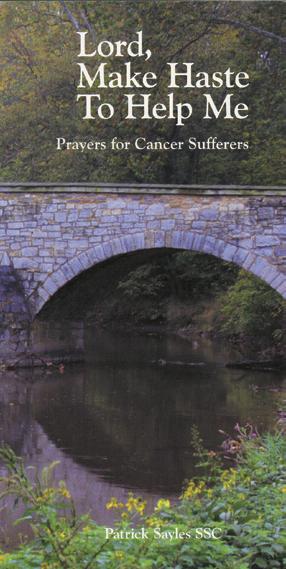





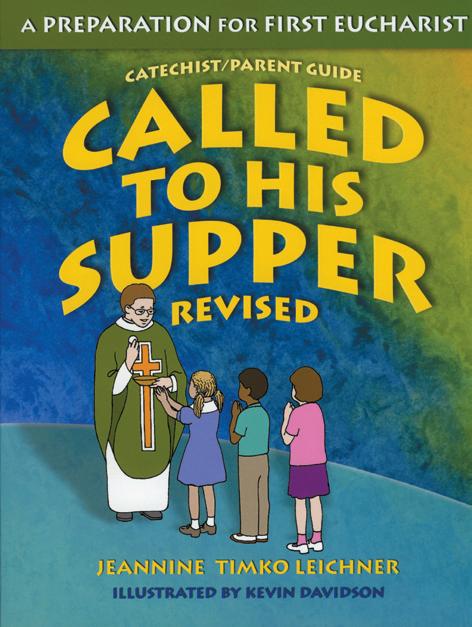
CALLED TO HIS SUPPER
Revised
A Preparation for first eucharist catechist / parent guide
By Jeannine Timko LeichnerFun and insightful activities help children learn about the eucharist and their call to be the body of Christ. Designed for use in the classroom or at home.
$24.95
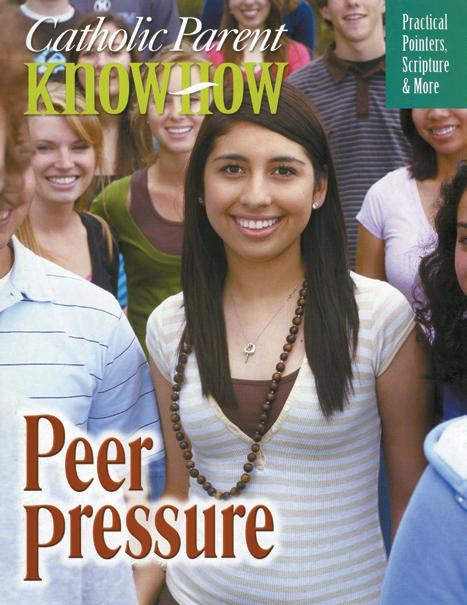

CATHOLIC PARENT KNOW HOW
Peer Pressure
Our Sunday Visitor
Catholic Parent Know-How: Peer Pressure is a high quality, easy-to-read resource that contains practical pointers about preparing children to face real world situations. Based on authentic Catholic teaching, each publication in the series carries the Church’s official marks of approval.
$3.95
Also available Confirmation, Scripture, Fundamentals, First reconciliation, First communion

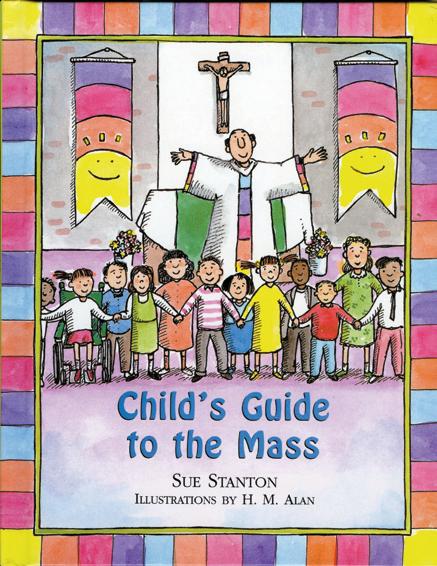
CHILDS GUIDE TO THE MASS
By Sue StantonIntroduces the Mass to children in a fun and engaging way. Contemporary, informative, playful with colourful drawings.
$14.95

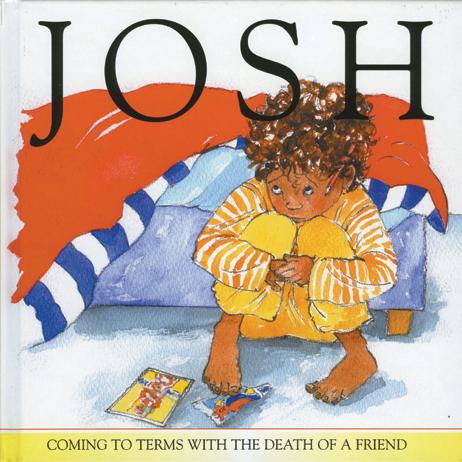
JOSH
Coming to terms with the death of a friend
By Stephanie Jeffs and Jacqui ThomasThis sensitive story, from a child’s perspective, moves through the pain and emptiness of grief and loss, to the sadness and acceptance of death and burial, from a Christian viewpoint.
$22.95

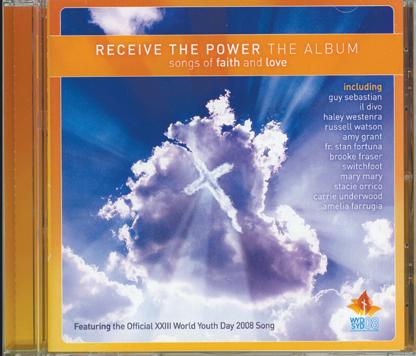
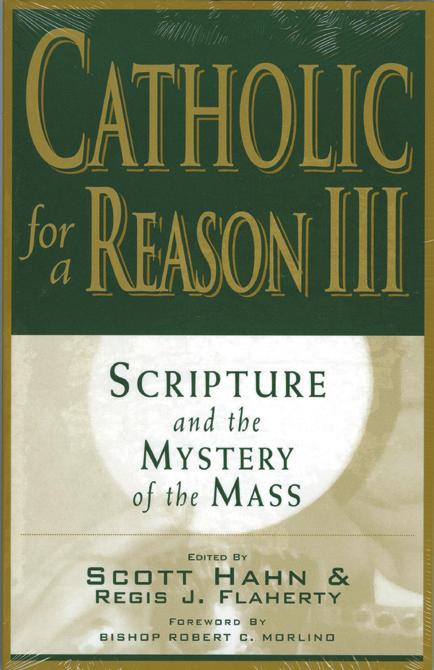

CATHOLIC FOR A REASON III
From genesis to revelation this book explore the biblical roots of the mass and the practical ways in which the mystery of the eucharist affects our everyday lifes.
$24.95


THE ESSENTIAL CATHO LIC HANDBOOK OF THE SACRAMENTS
A summary of beliefs, rites and prayers
A Redemptorist pastoral publication
This guide includes information about the sacraments, a dictionary of keywords and concepts, along with a section on traditional and contemporary prayers.
$21.95


CHILD’S GUIDE TO RECONCILIATION
By Elizabeth FicocelliDescribes the purpose and proceedure of the rite its helps to alleviate the nervousness commonly associated with coffession and shows children how to approach the Sacrament with true comfort and a sense of joy and reverance.
$16.95
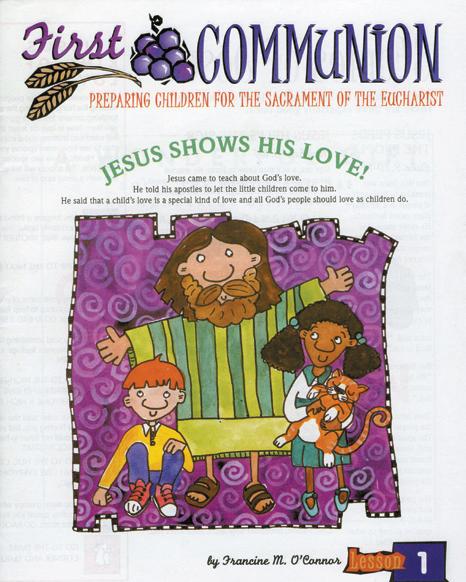

FIRST COMMUNION
Preparing children for the sacrament of the Eucharist
Activities and lessons for parents and teachers to prepare children for their first holy communion. A must have resouce book.
$2.95


This beautifully designed, embossed harcover book is a celebration.
never be forgotten.
